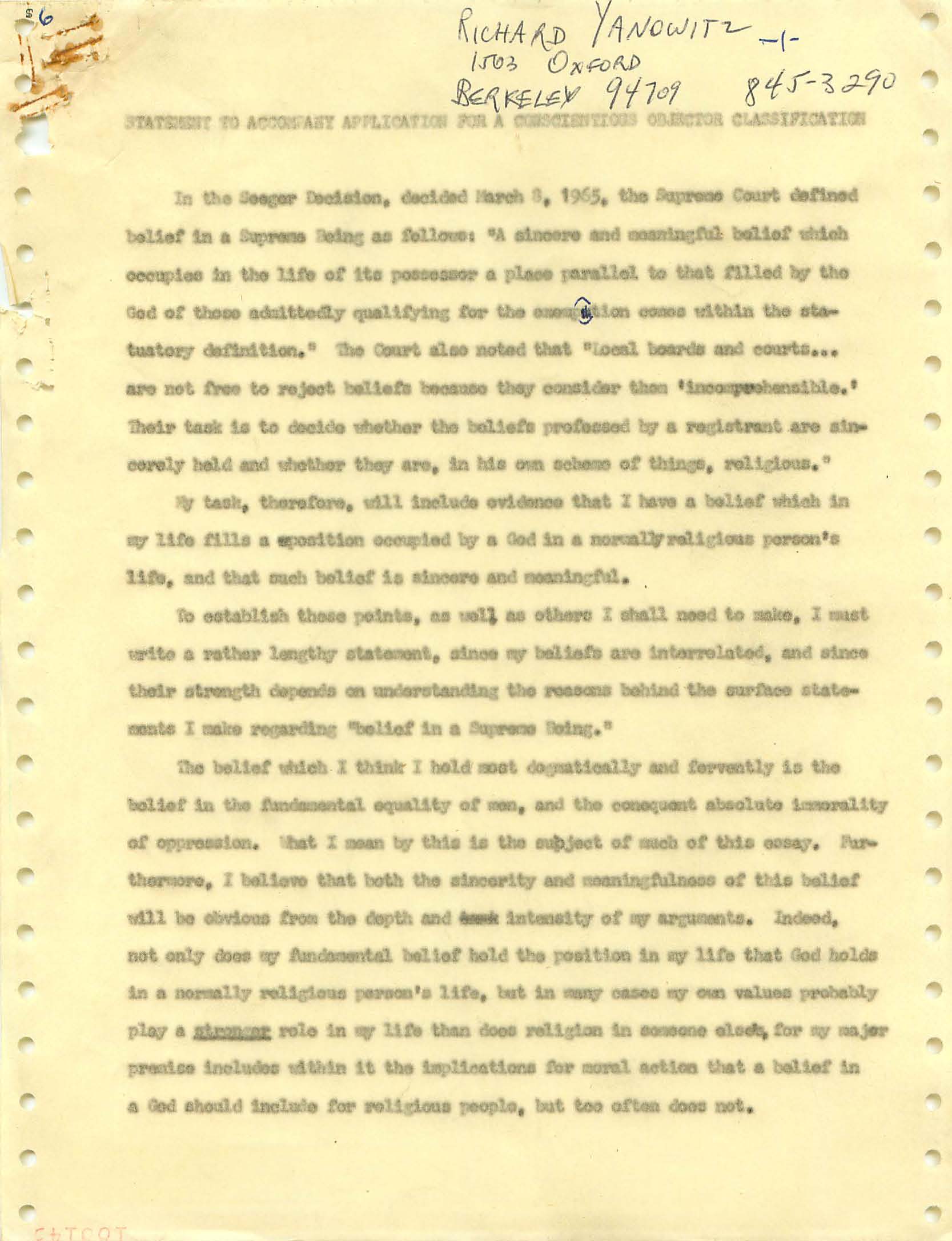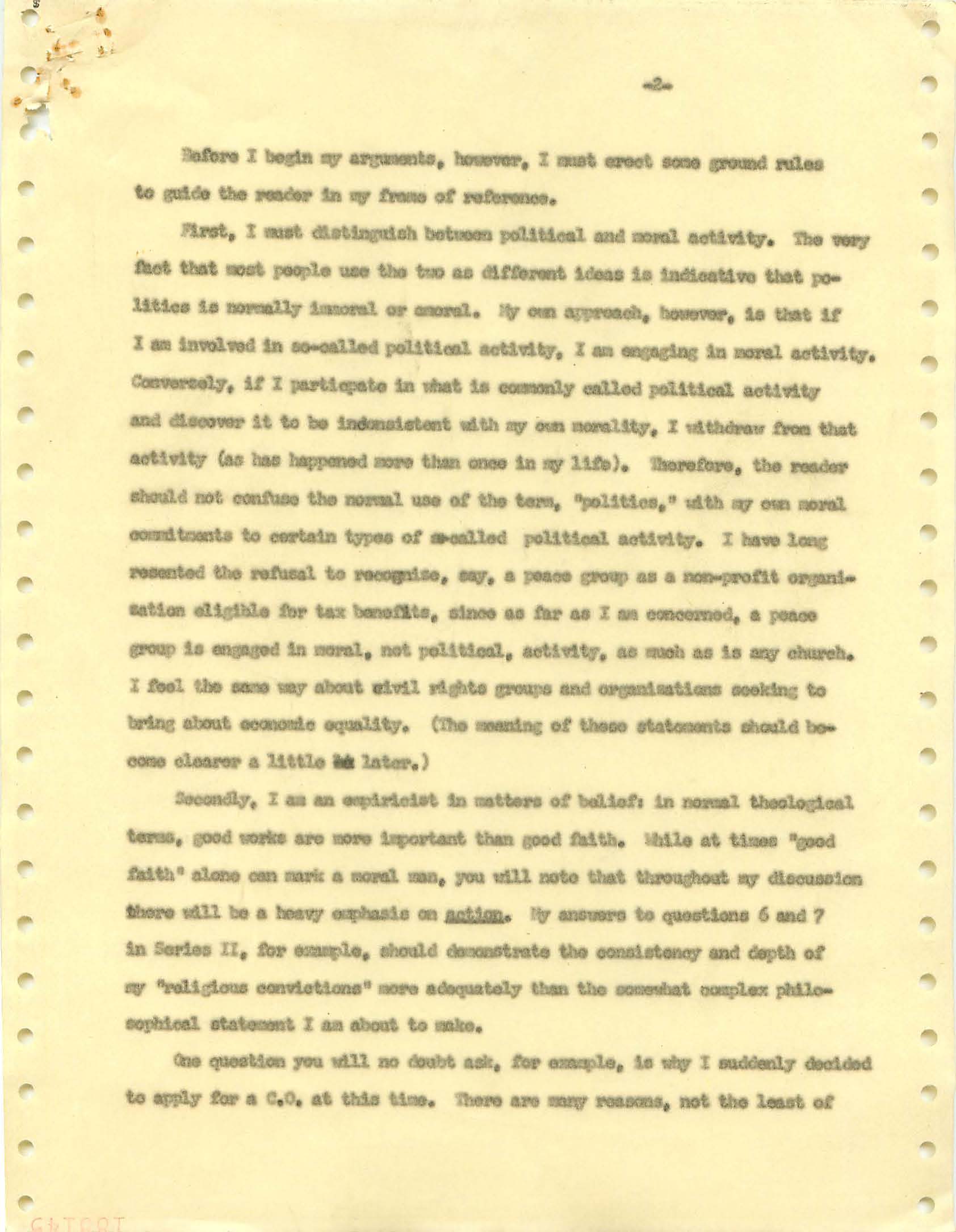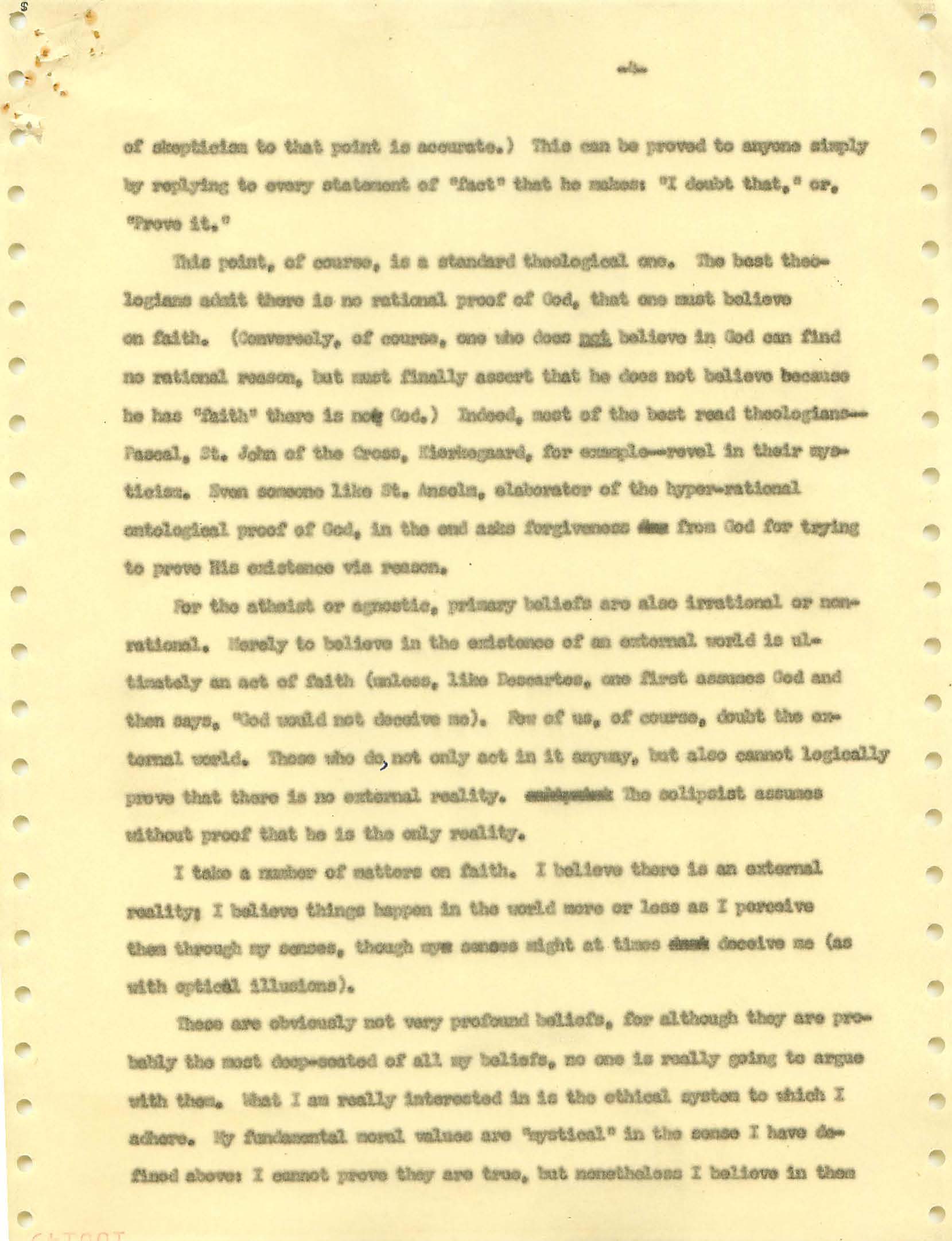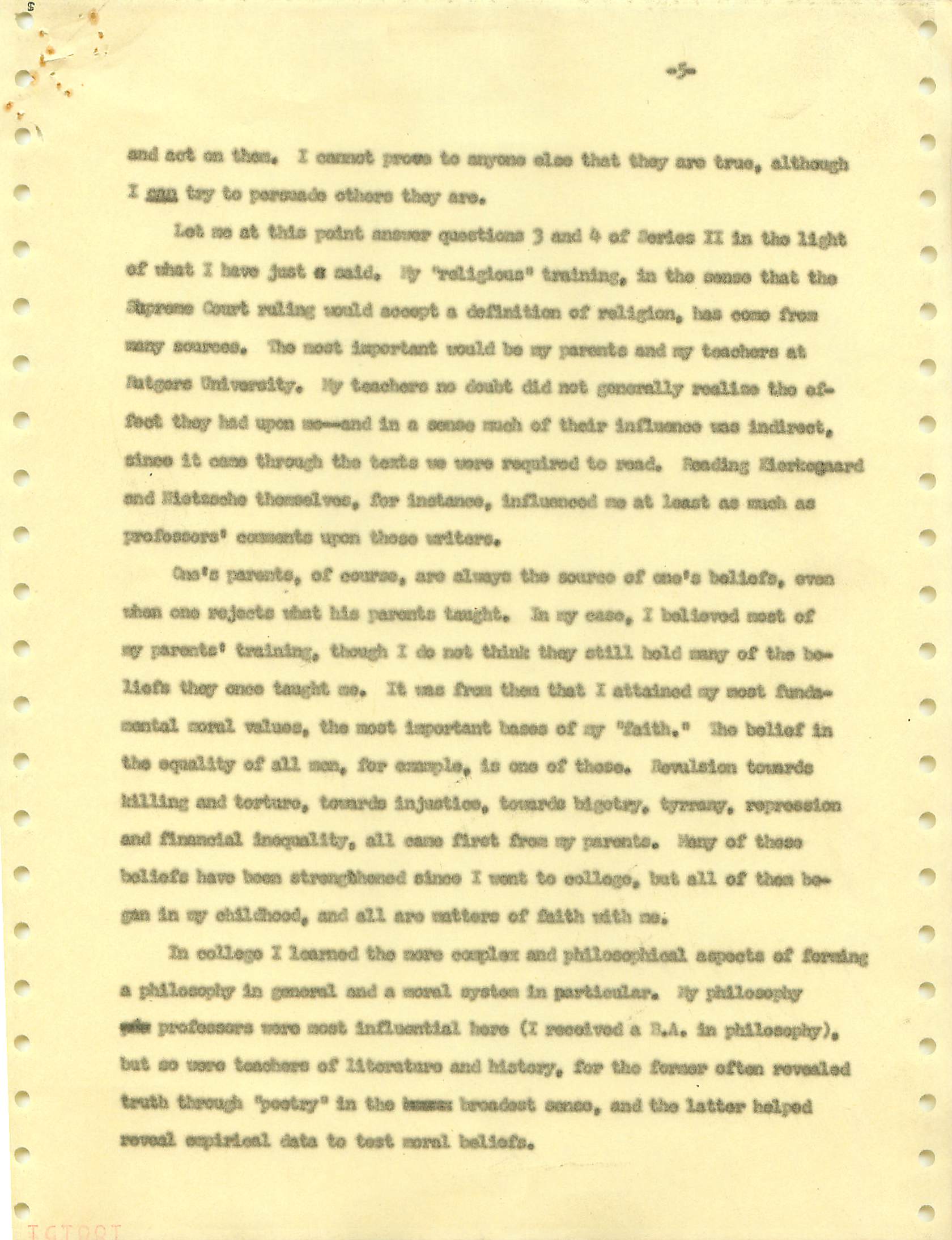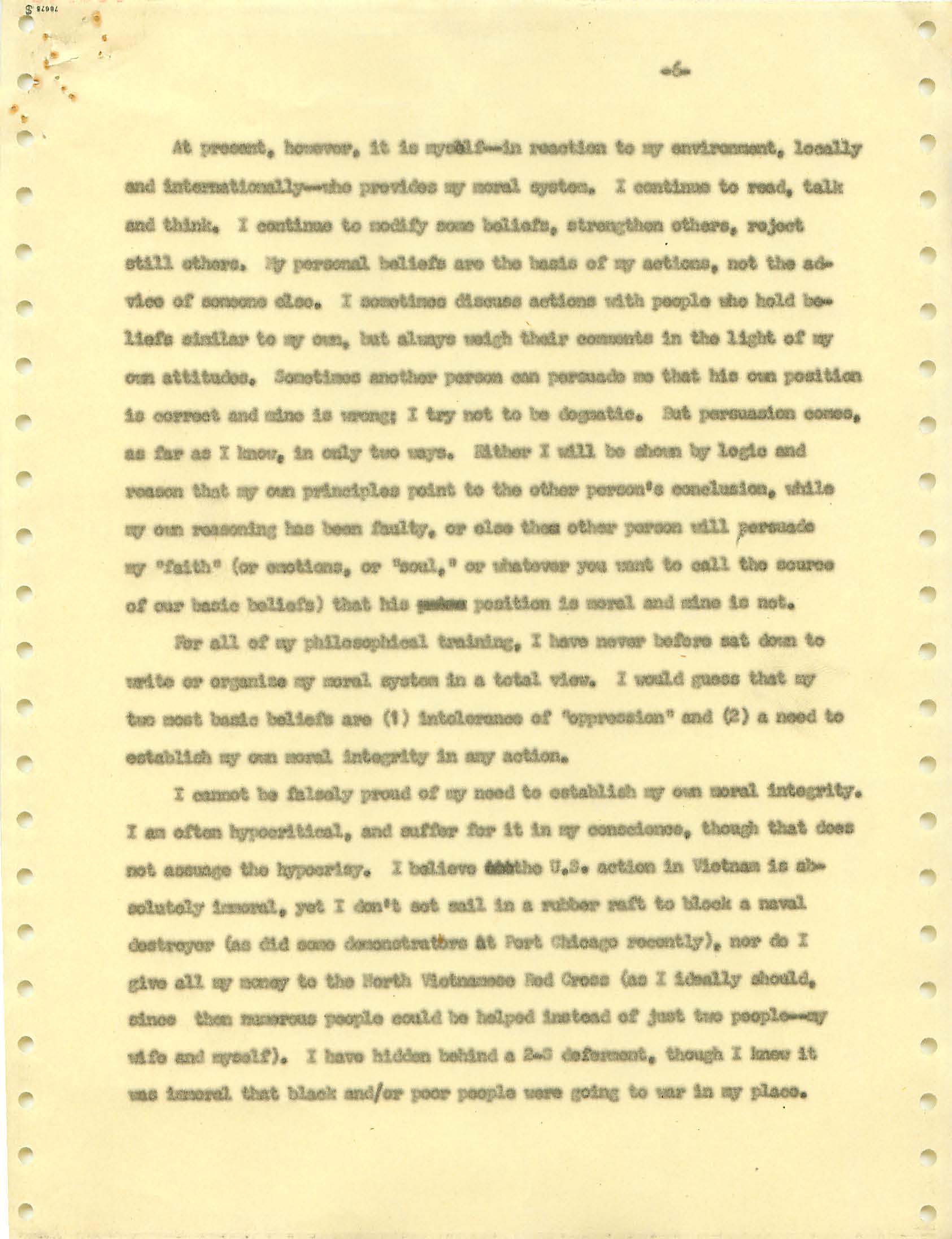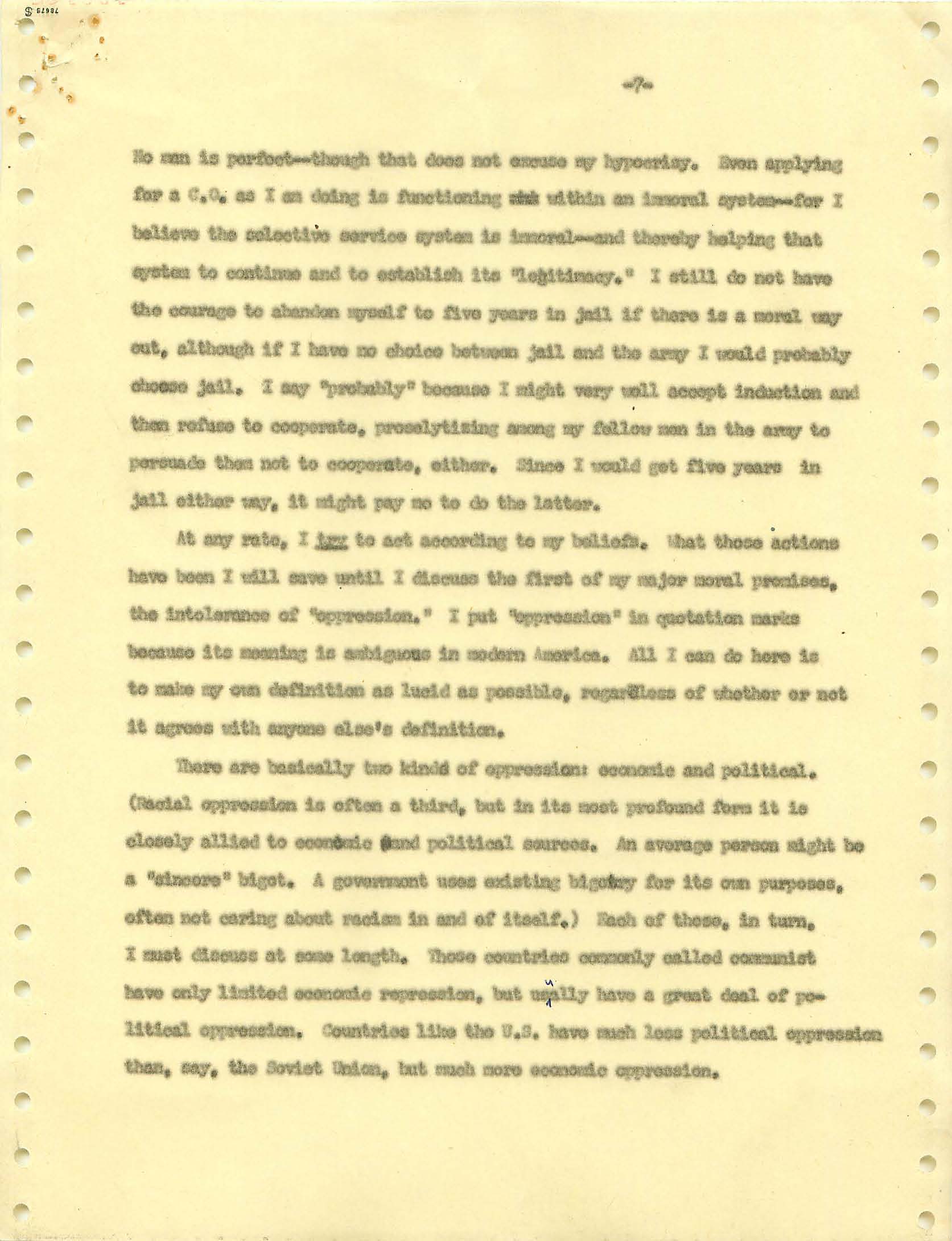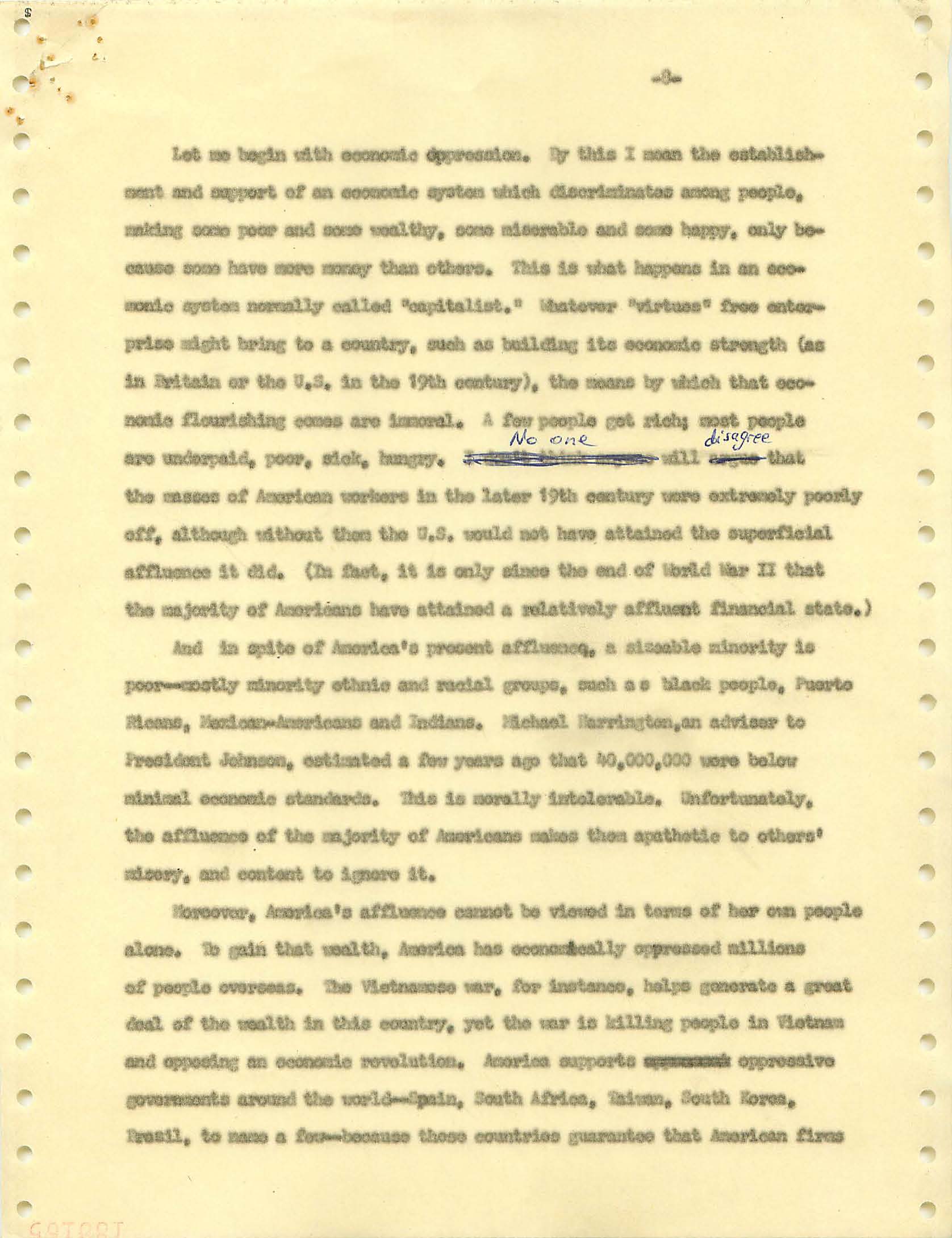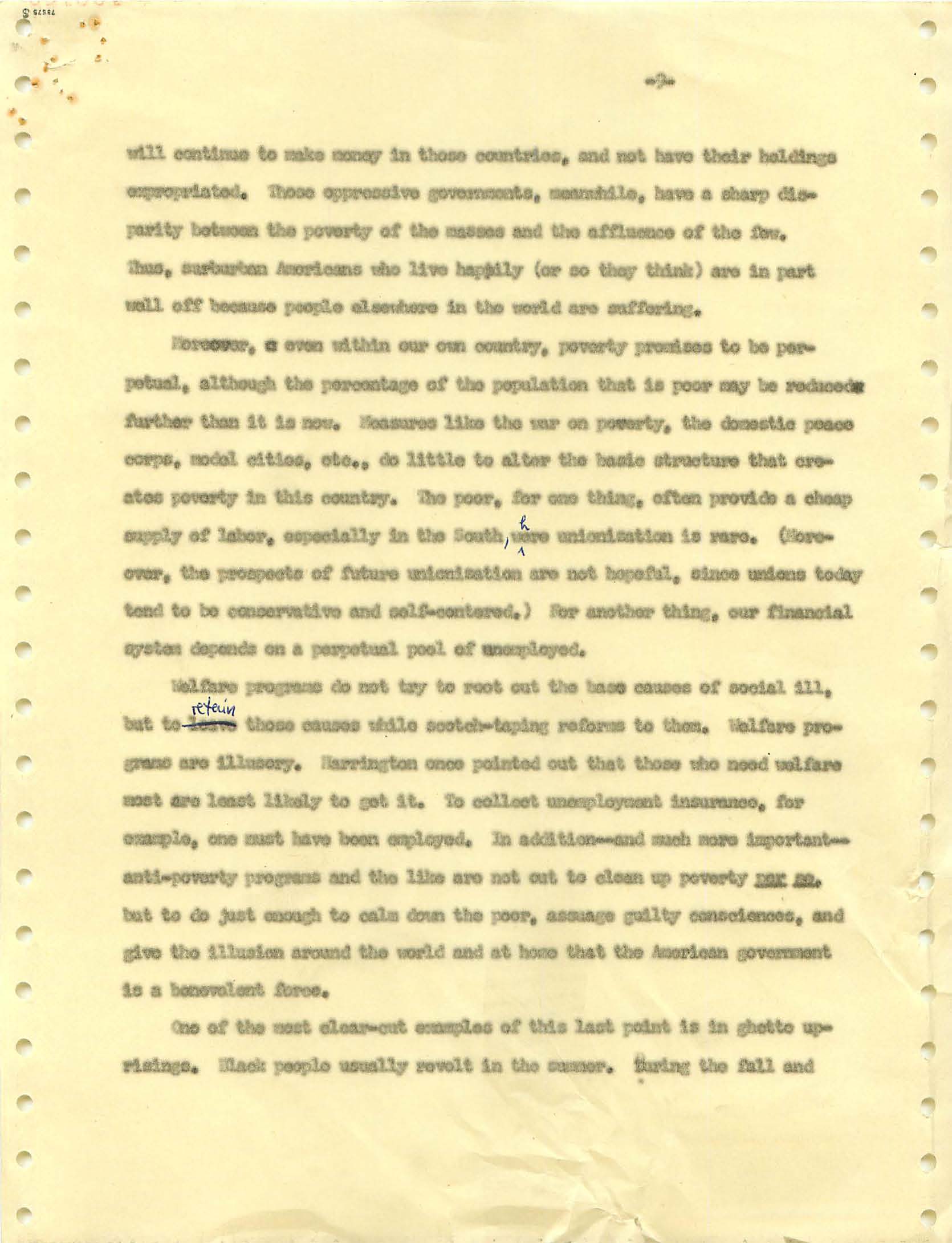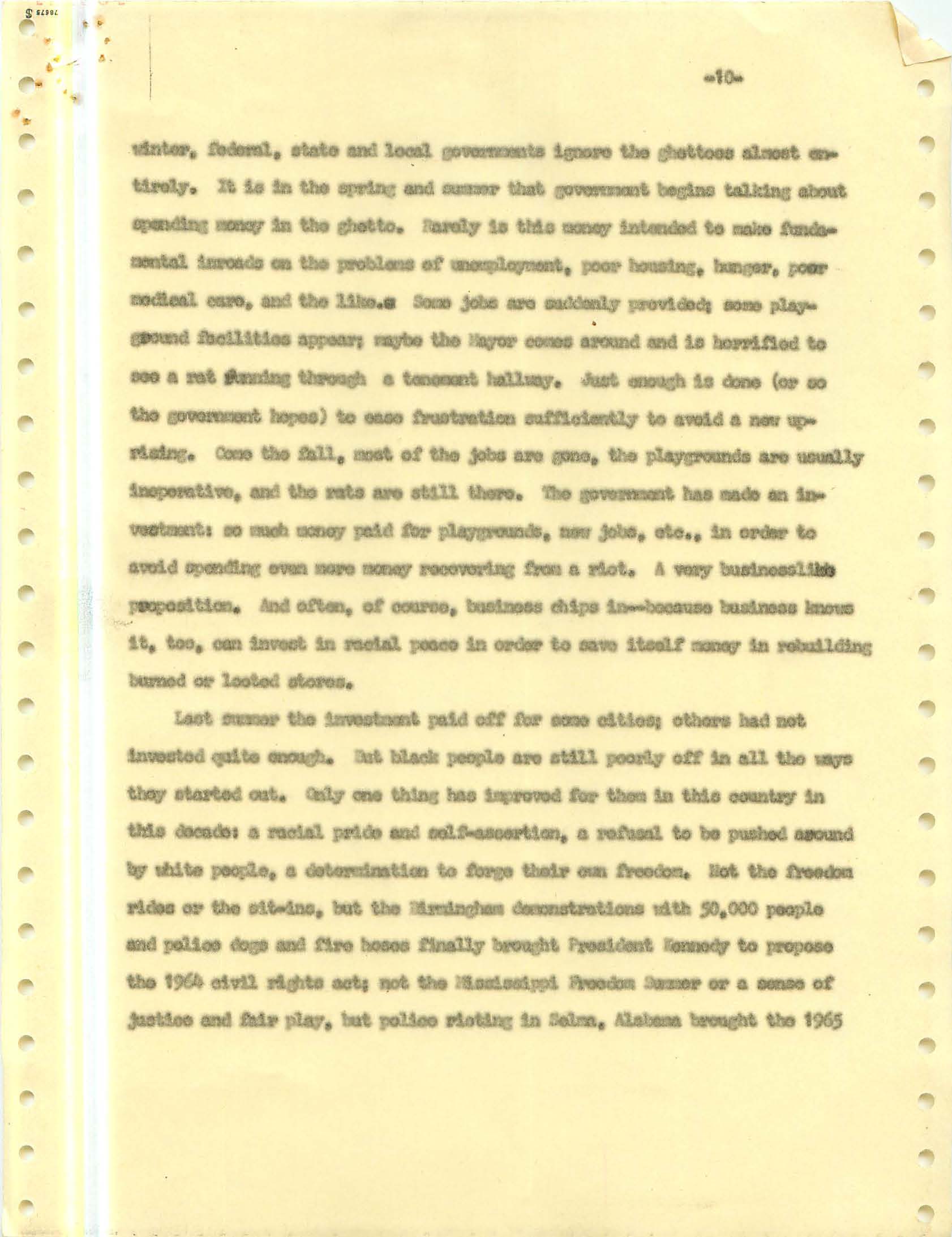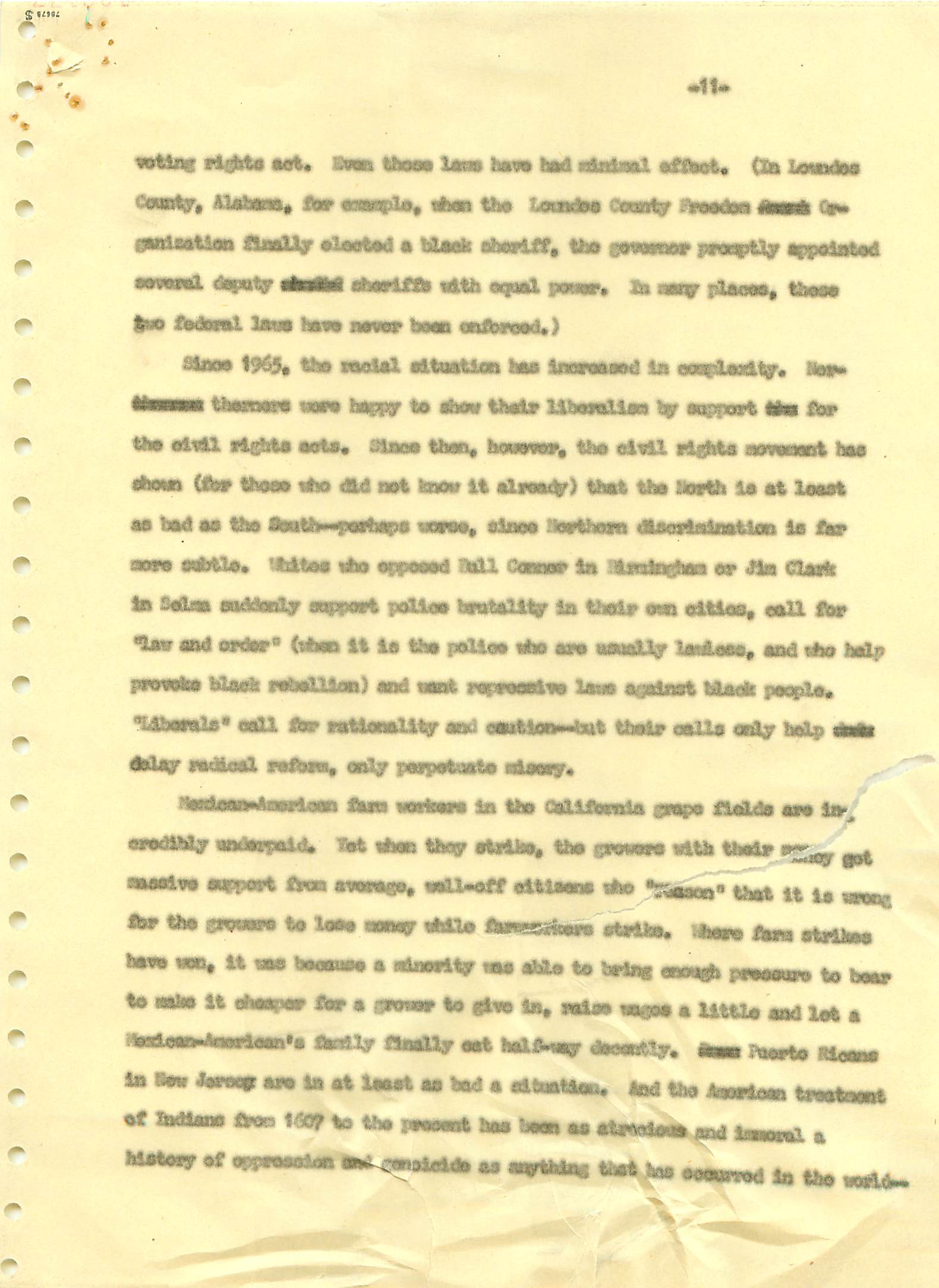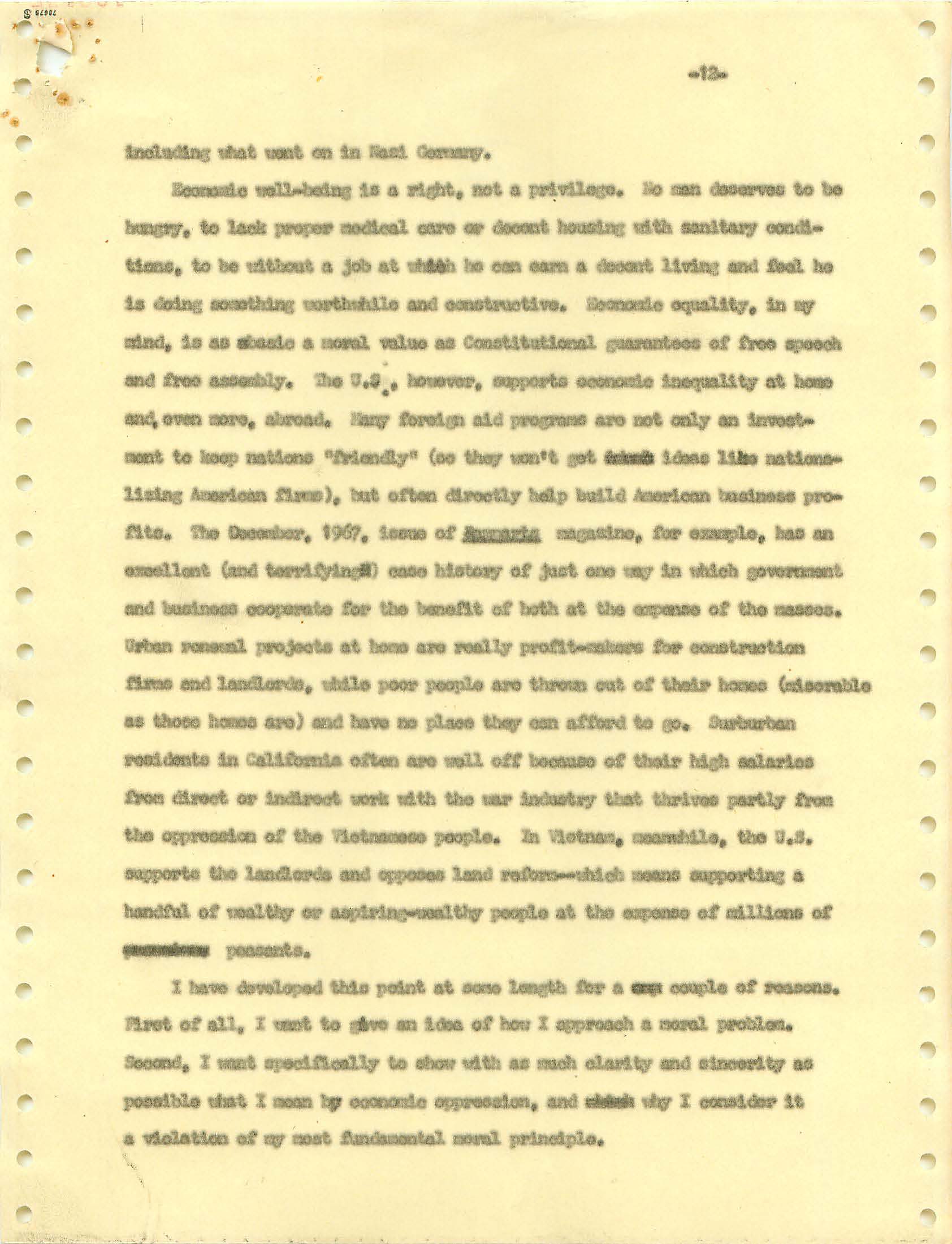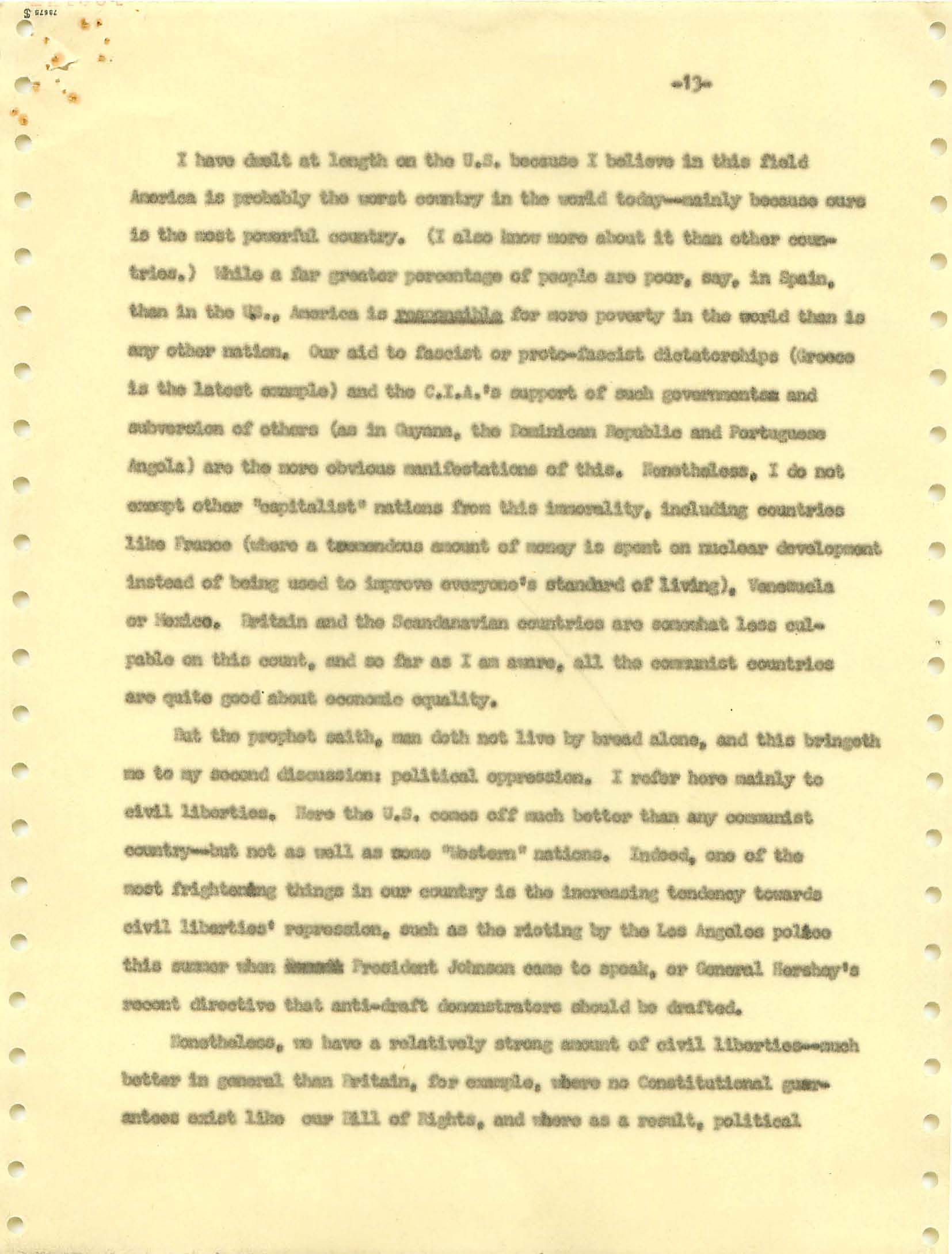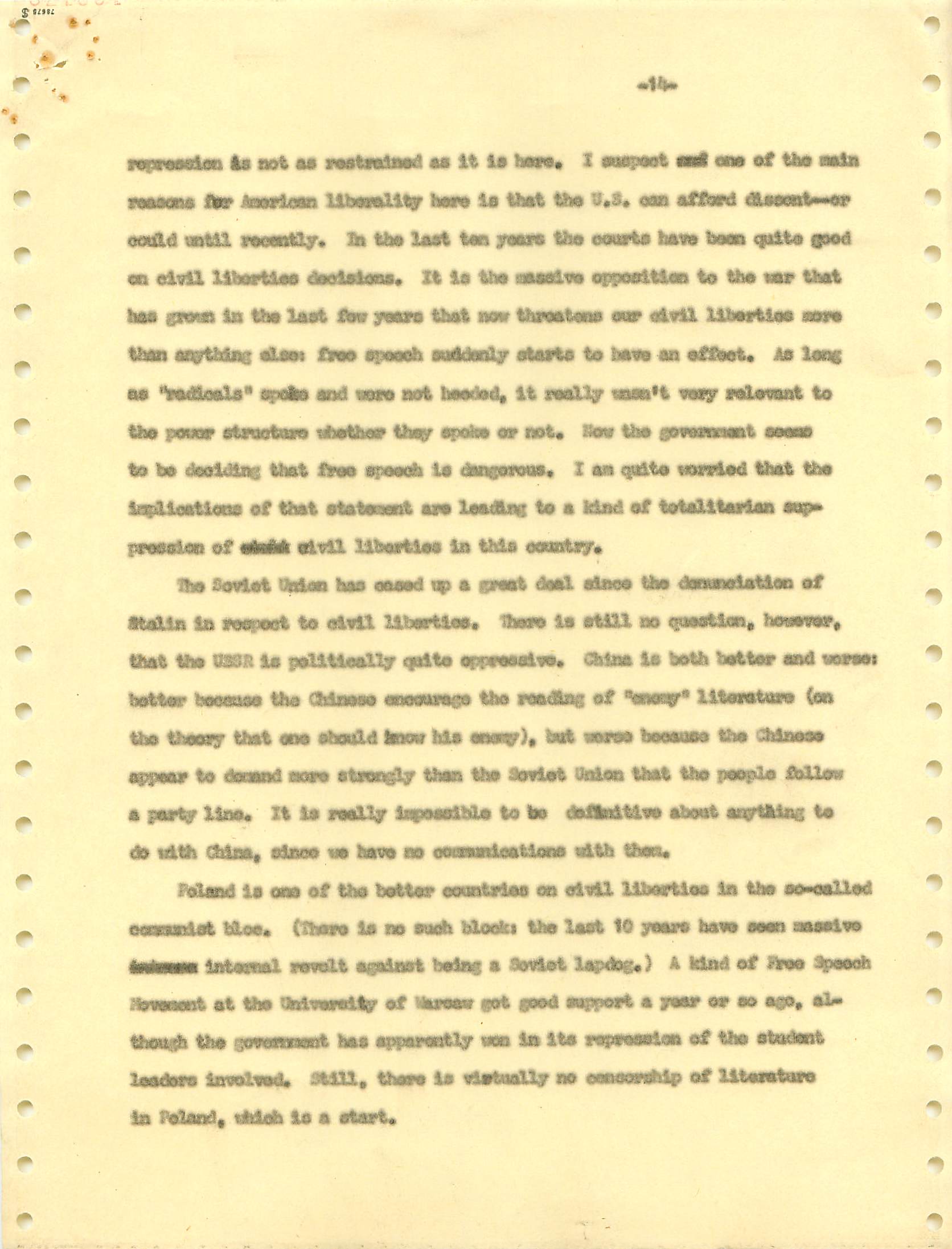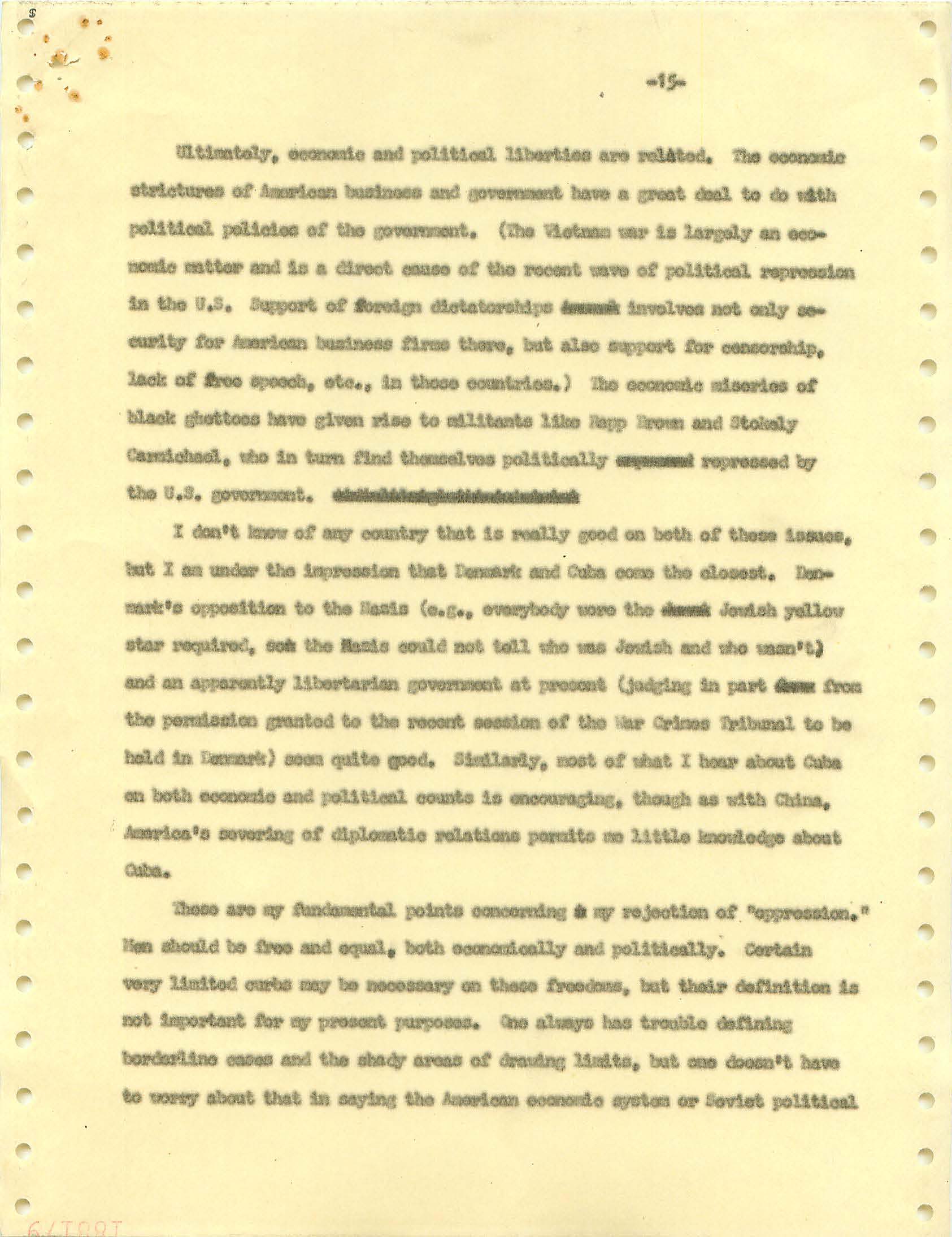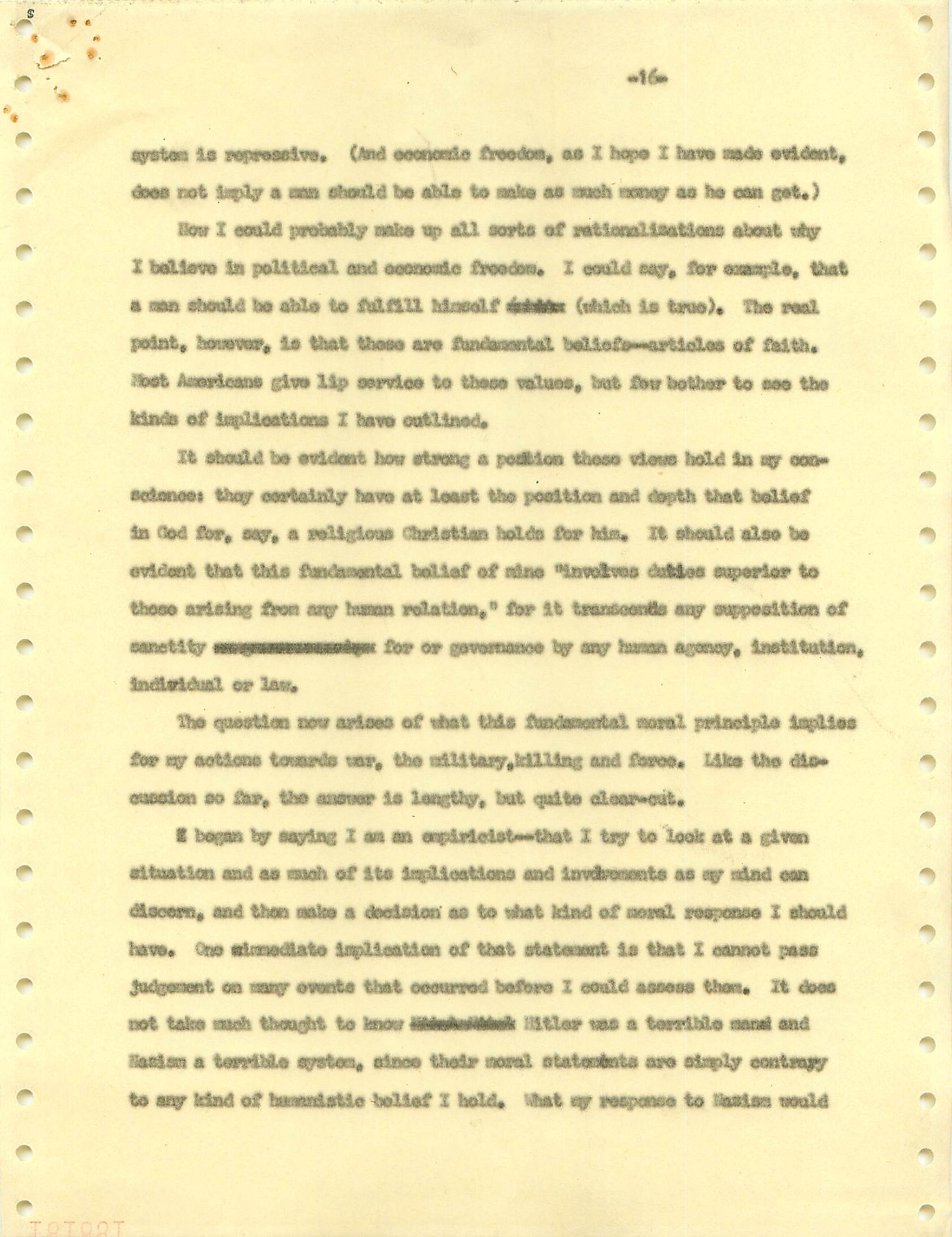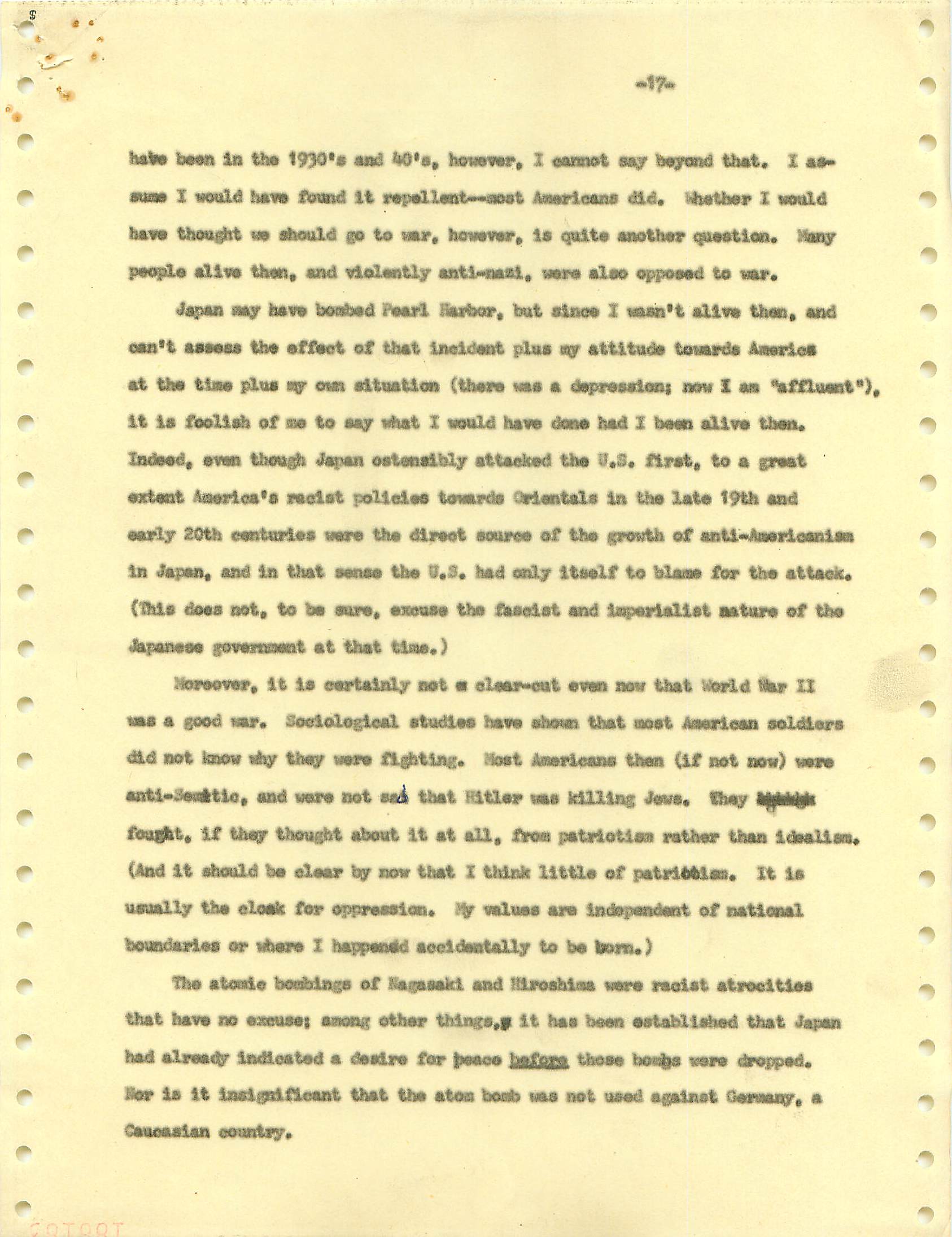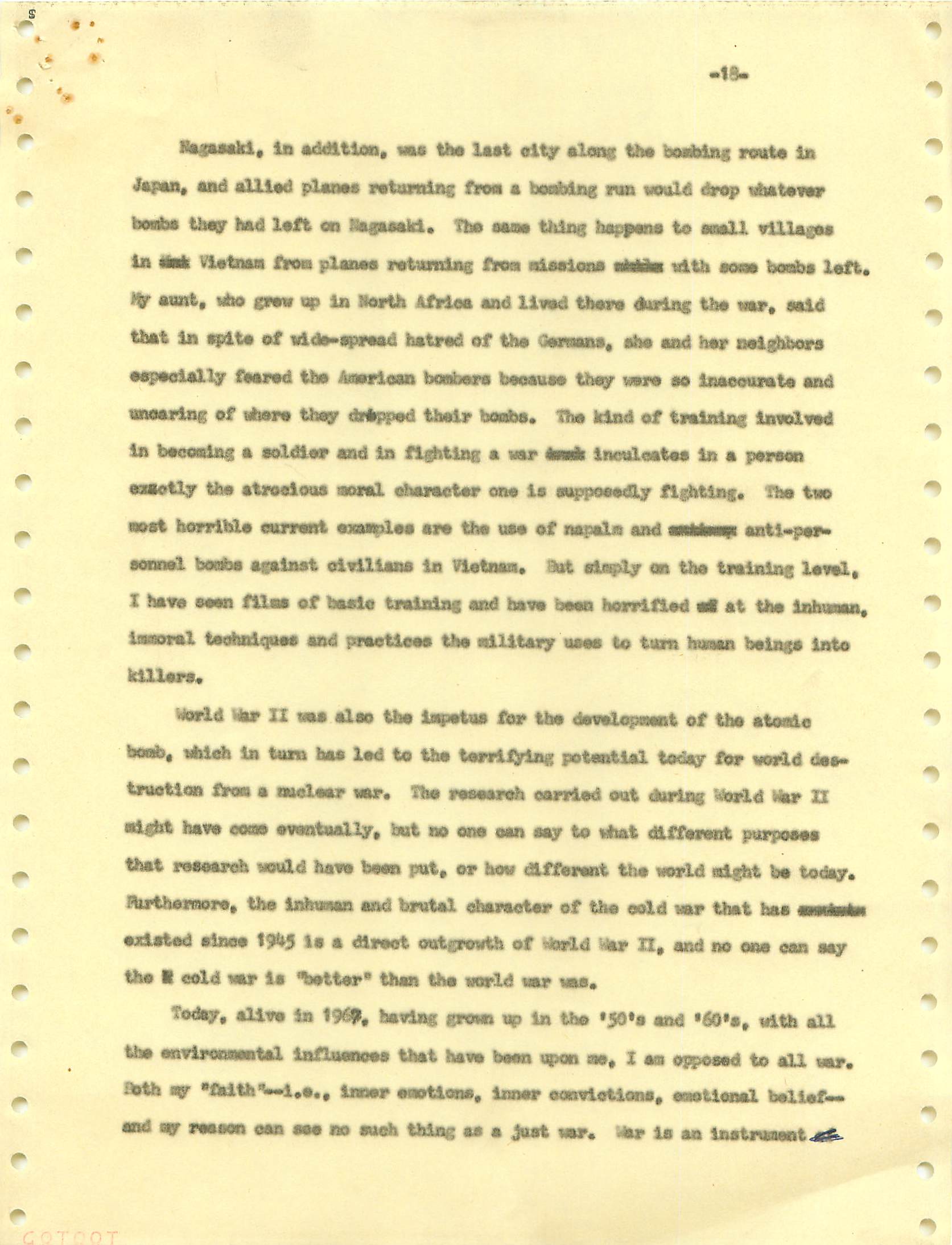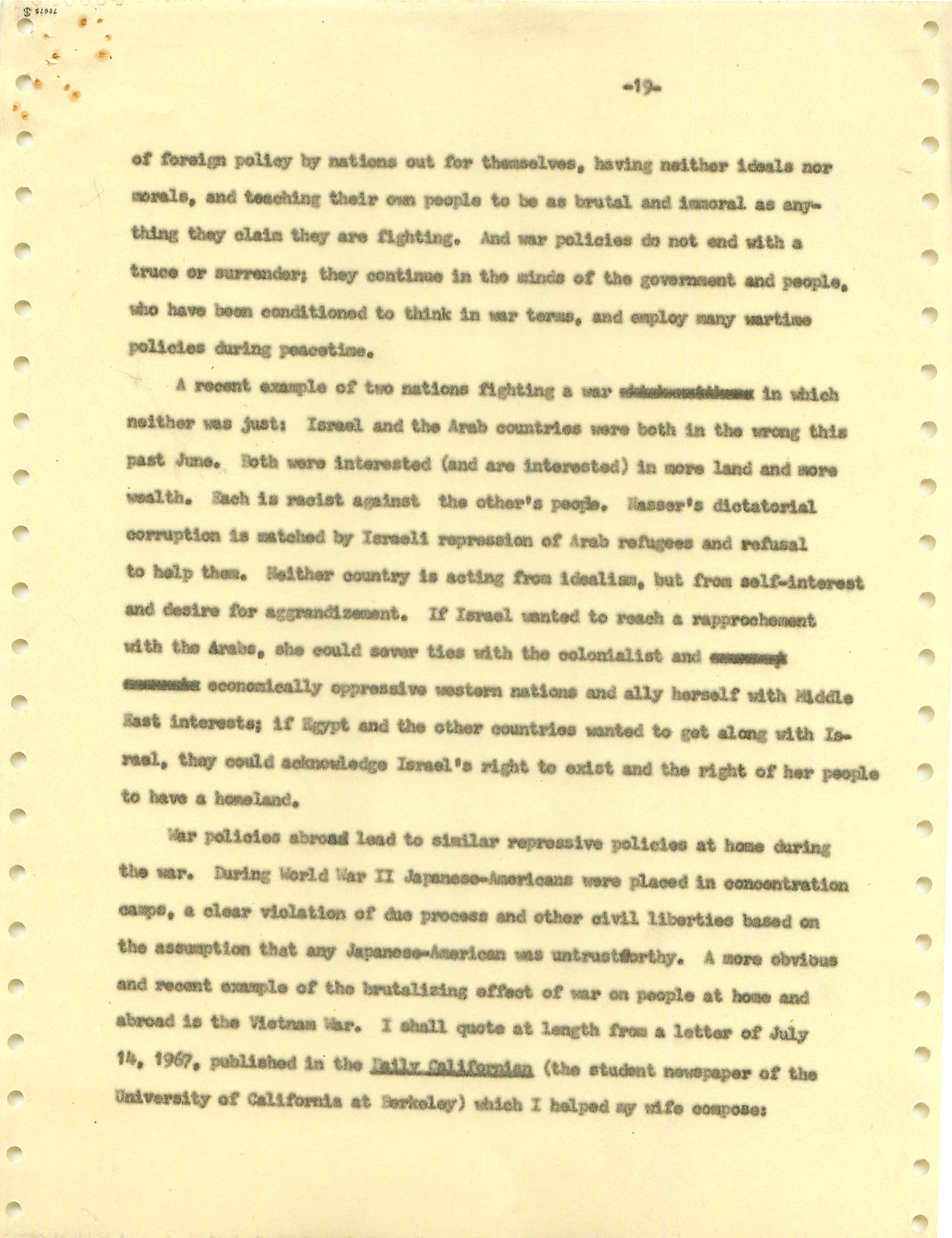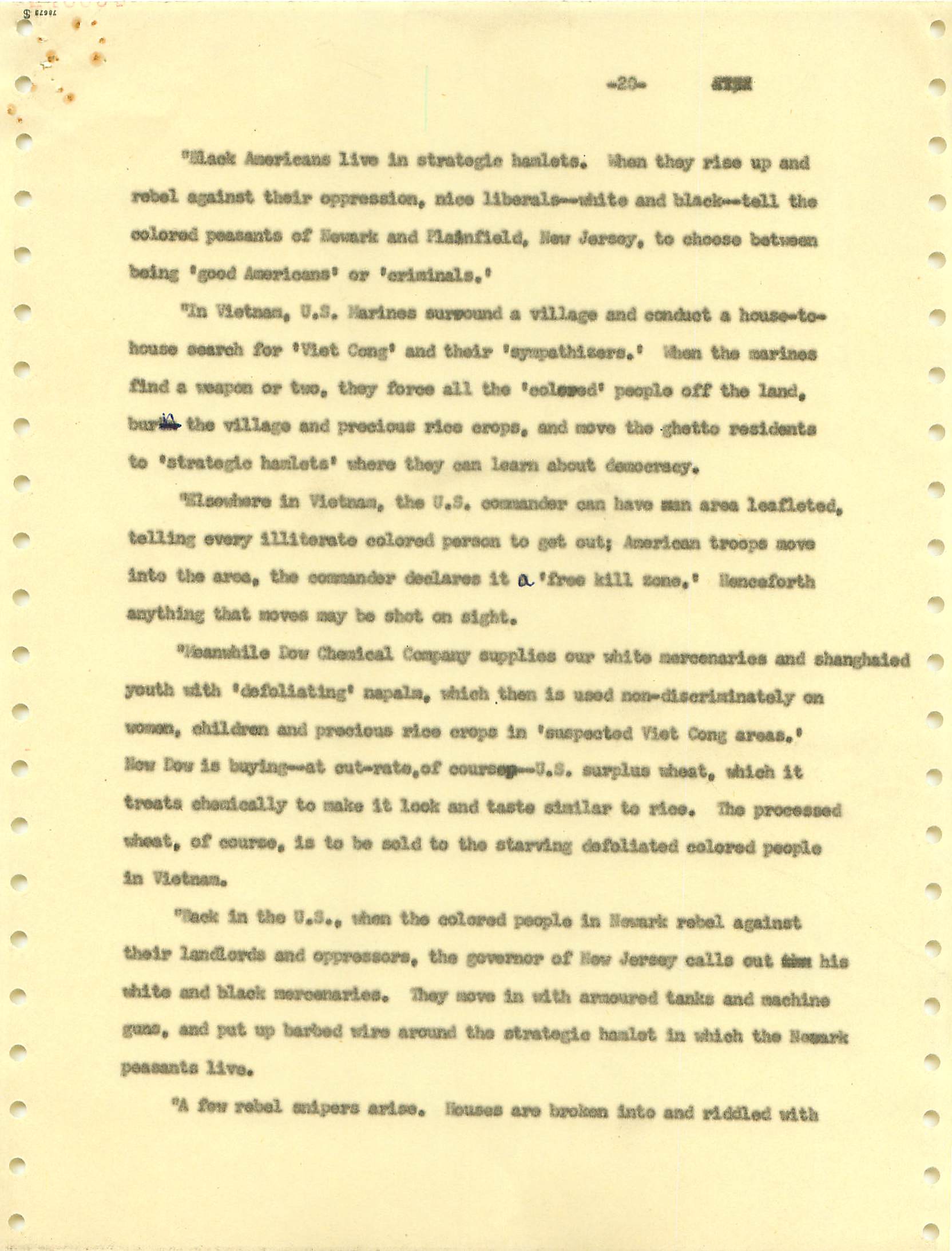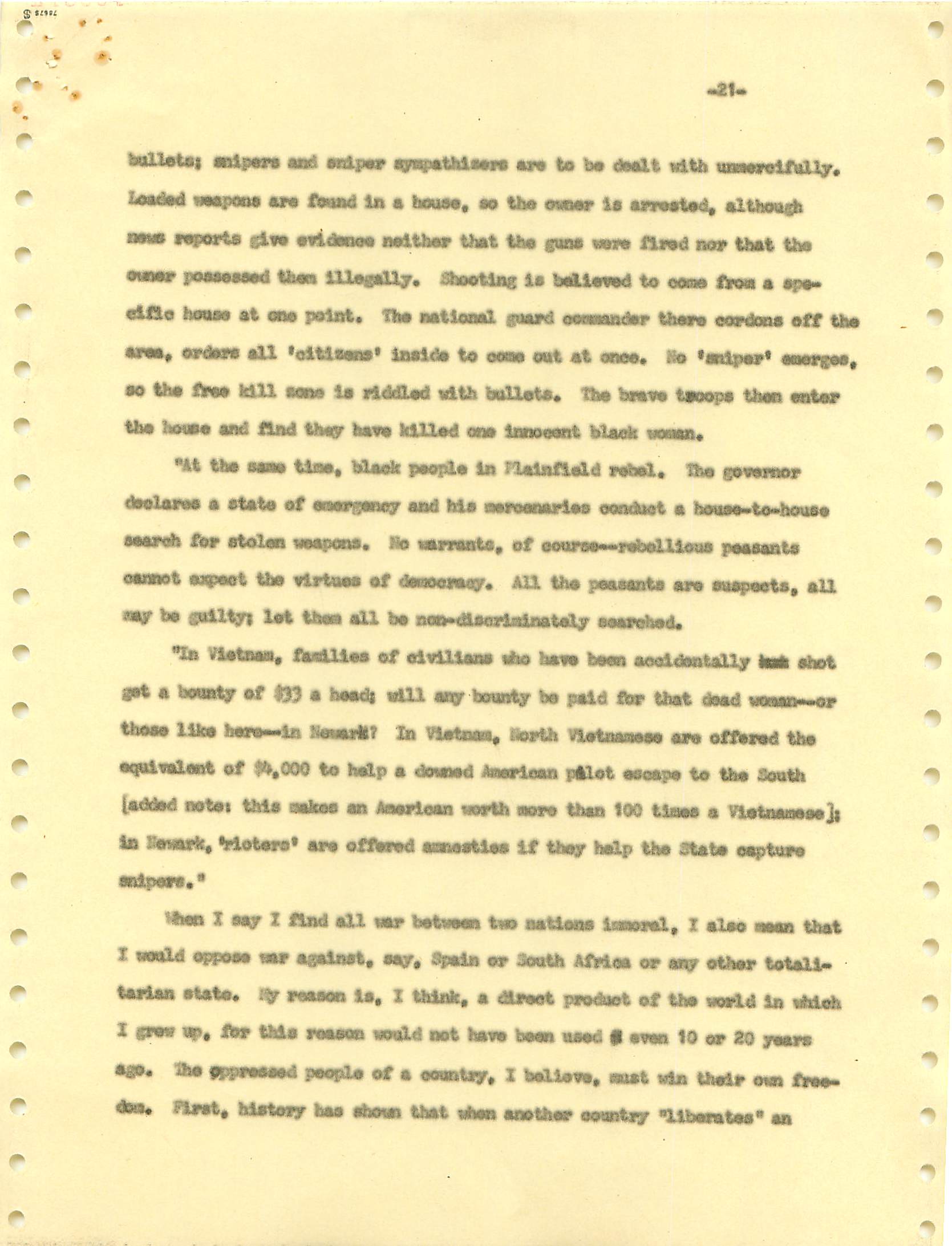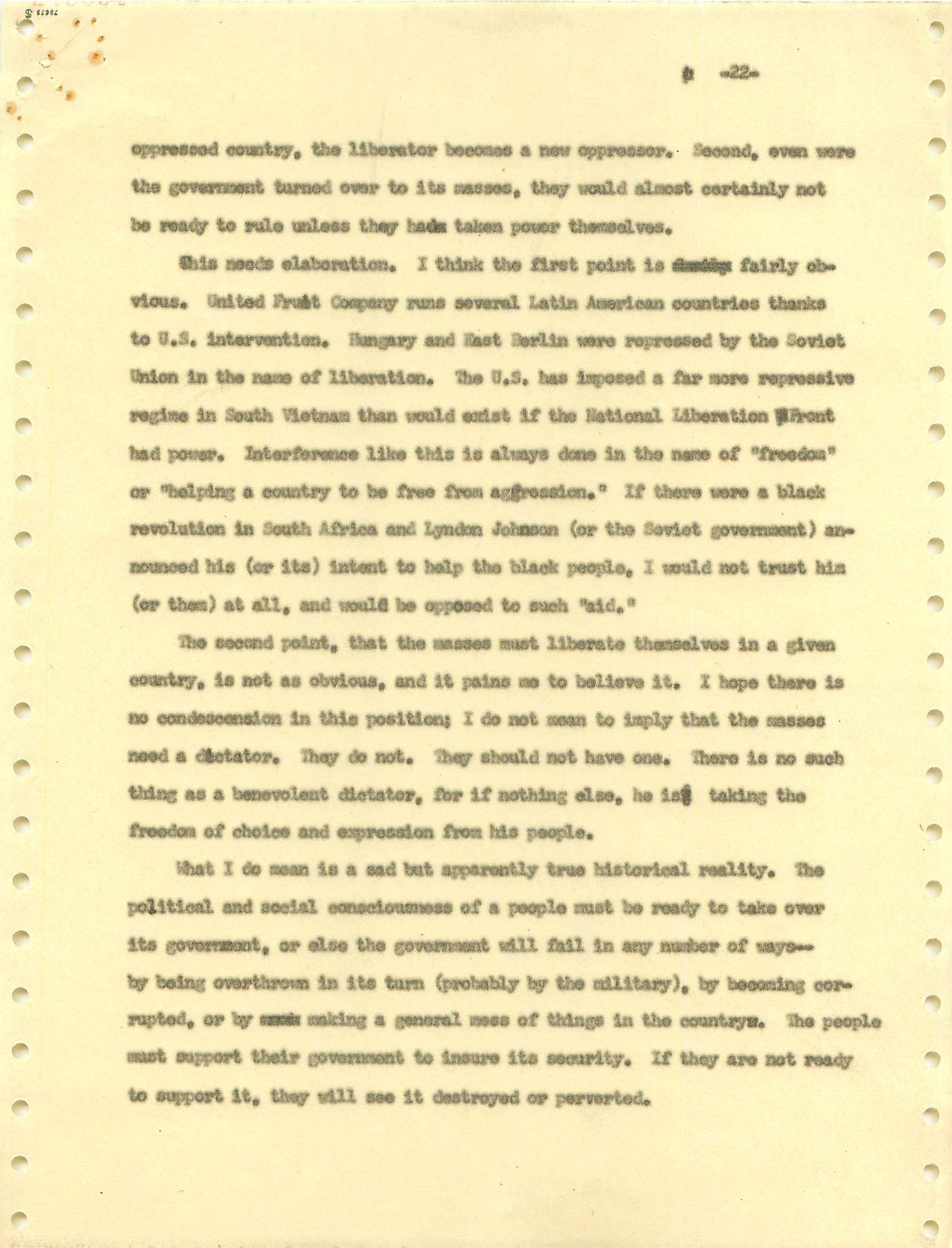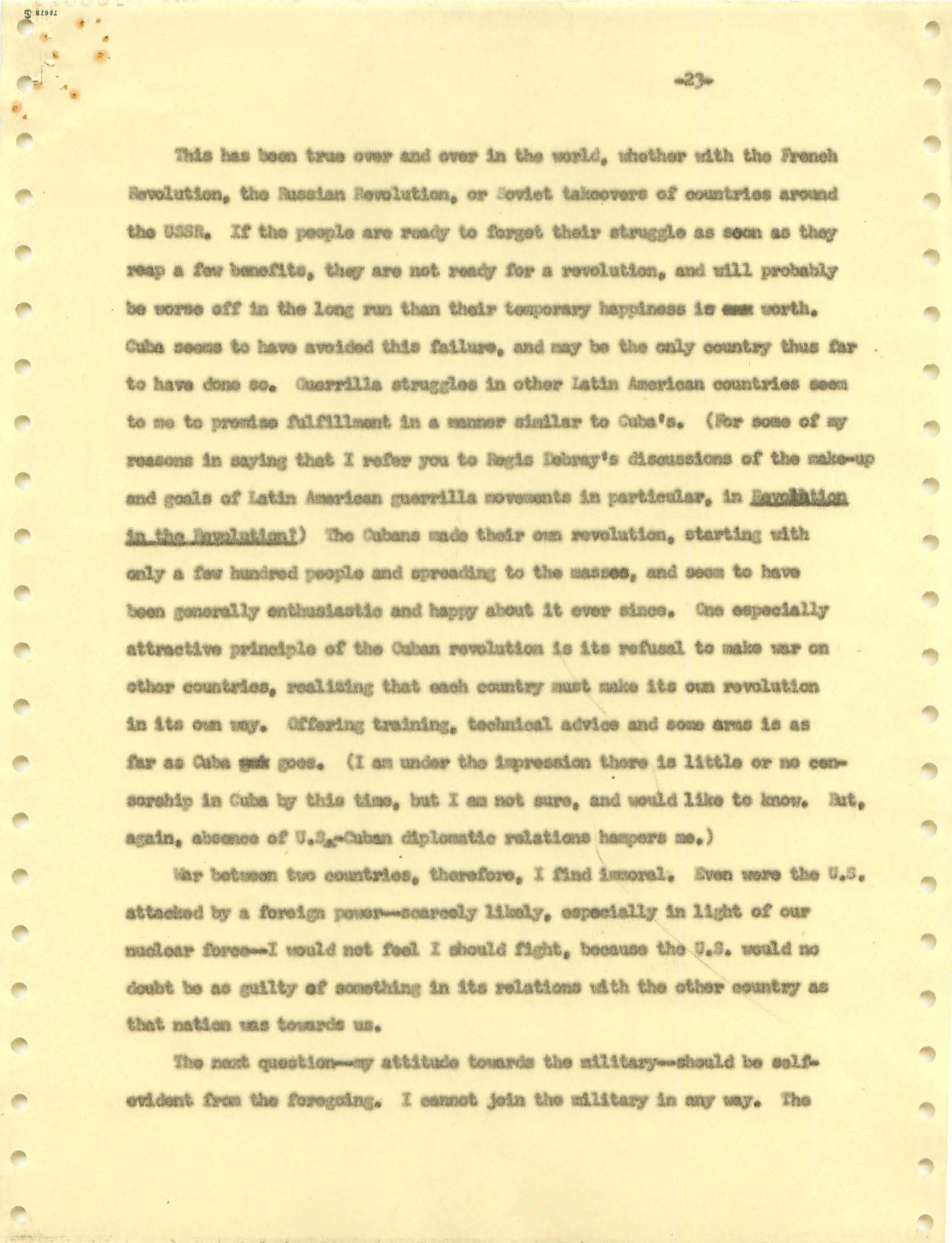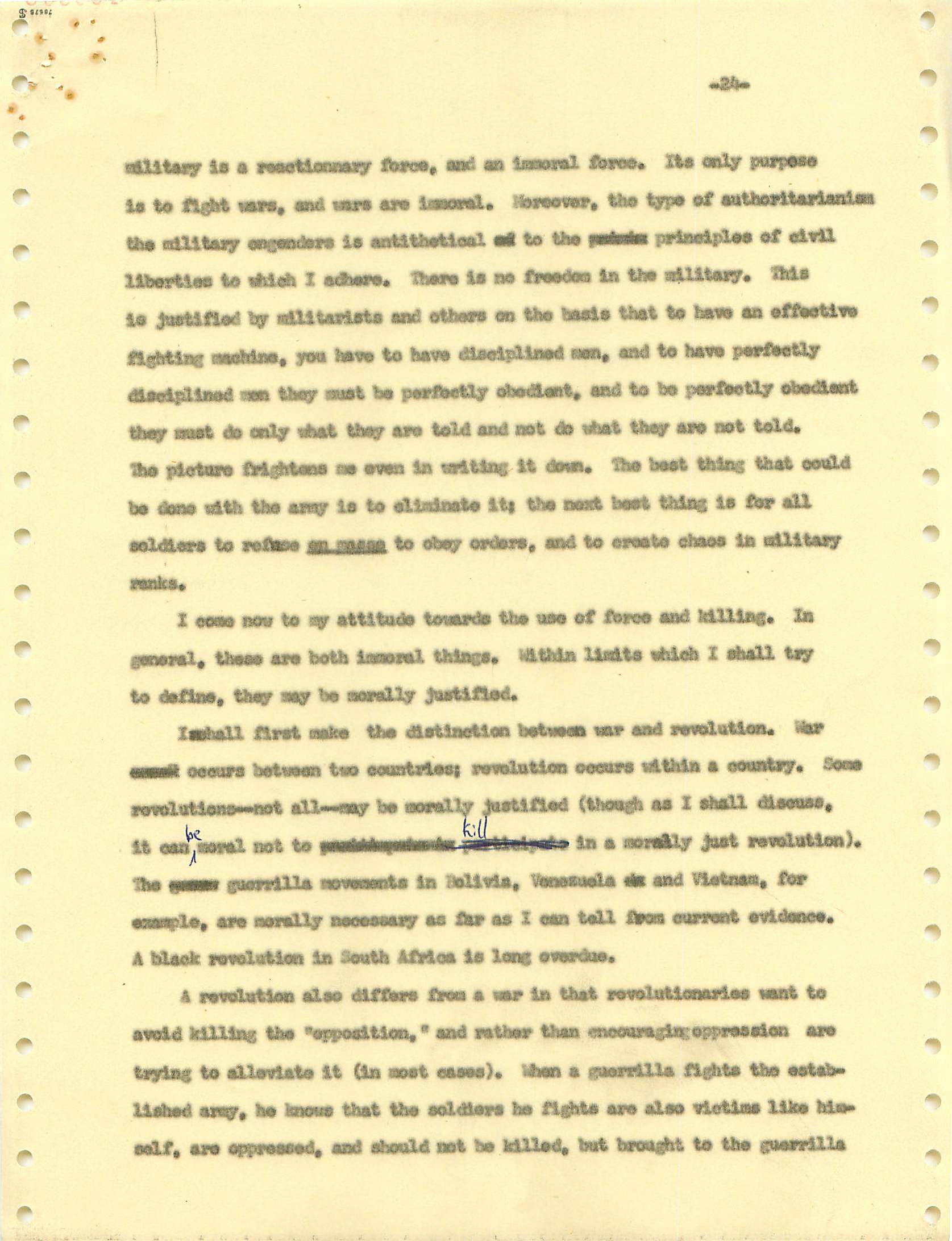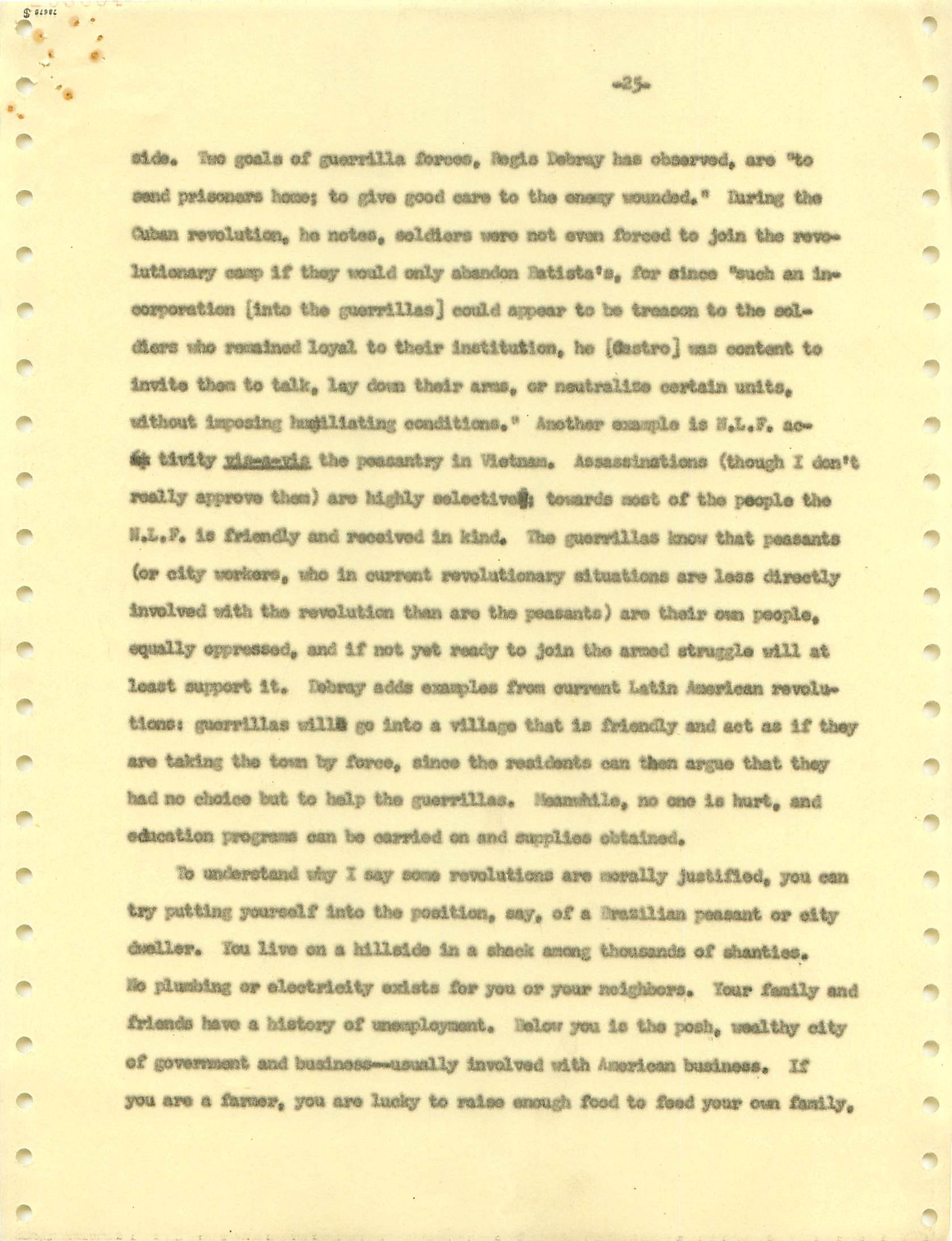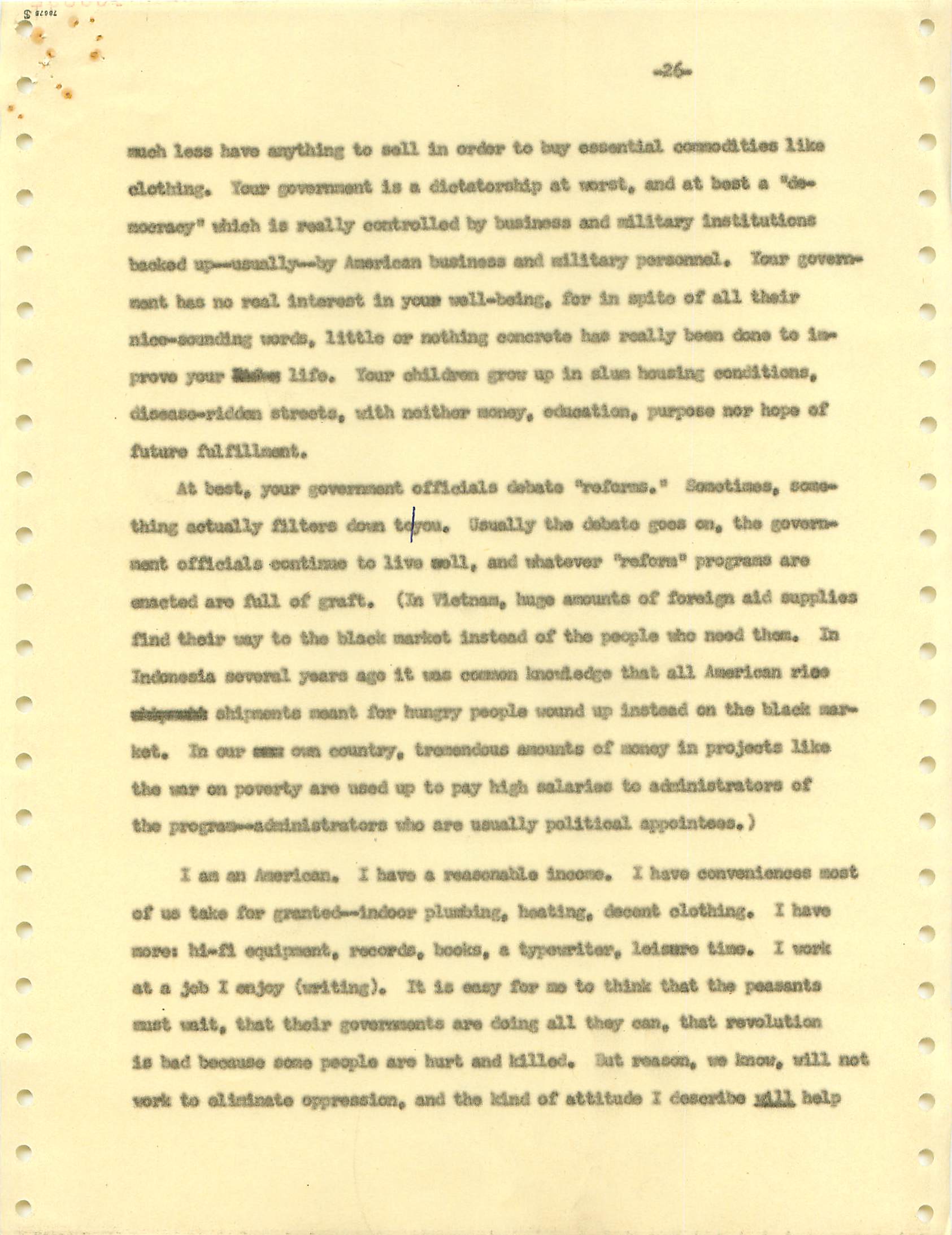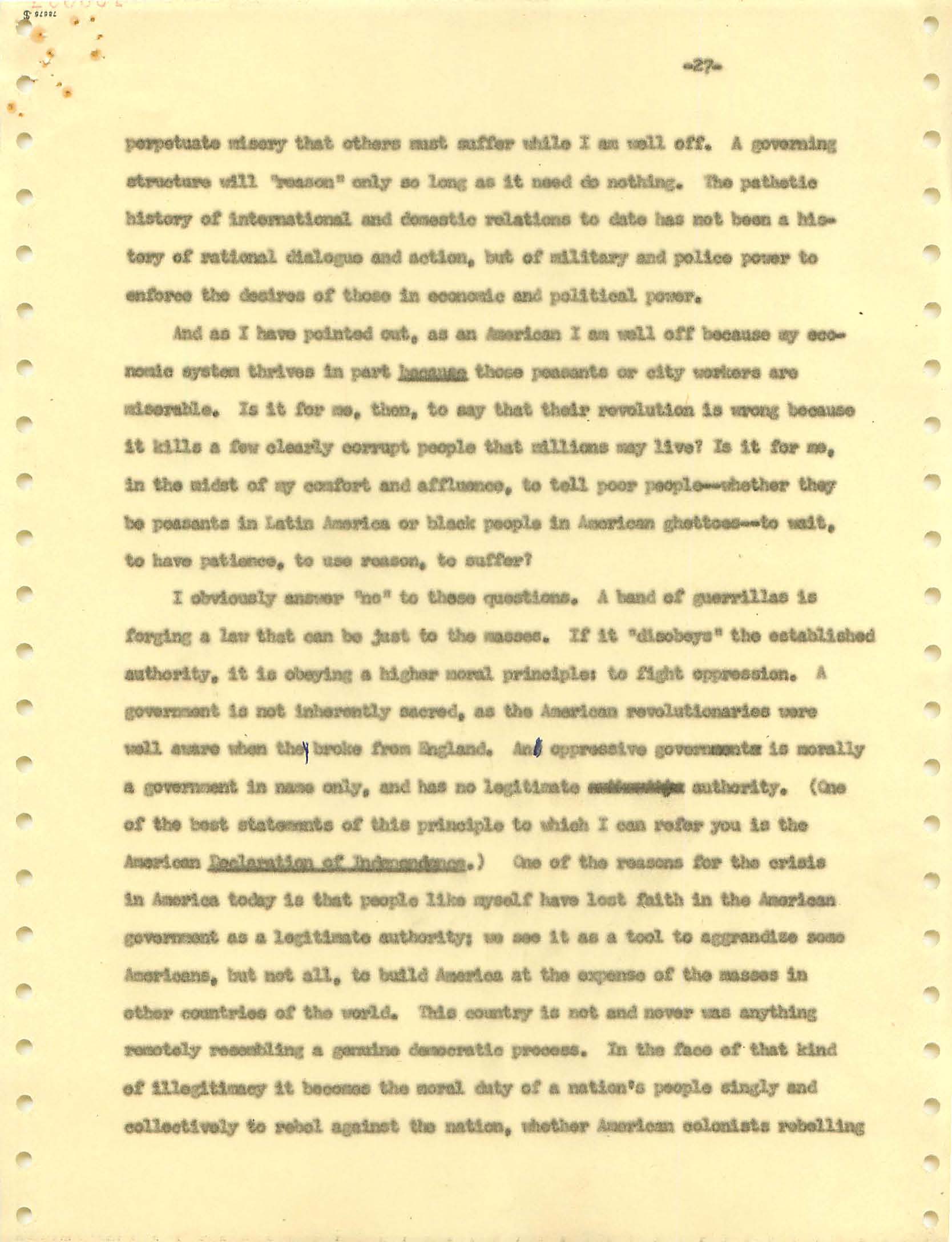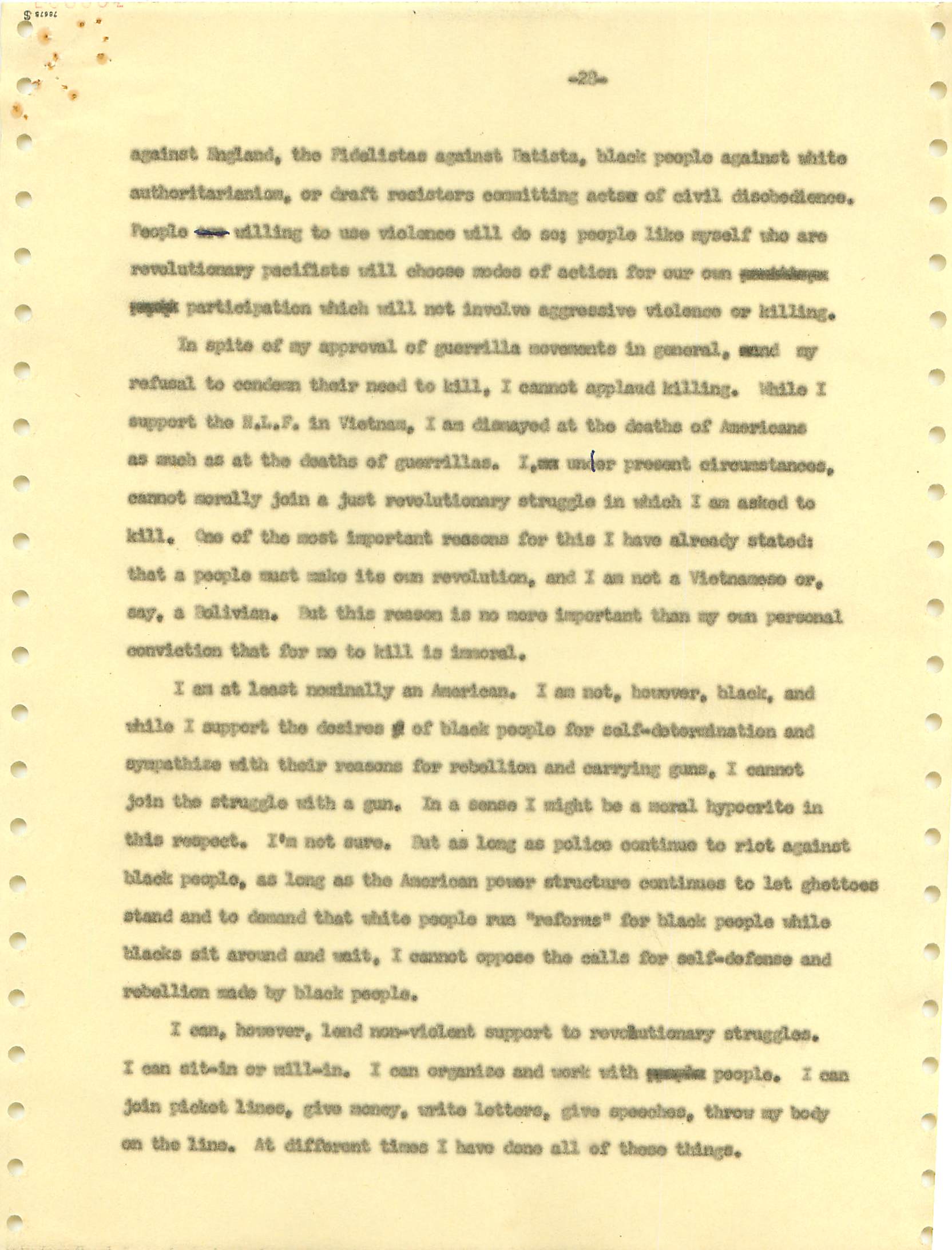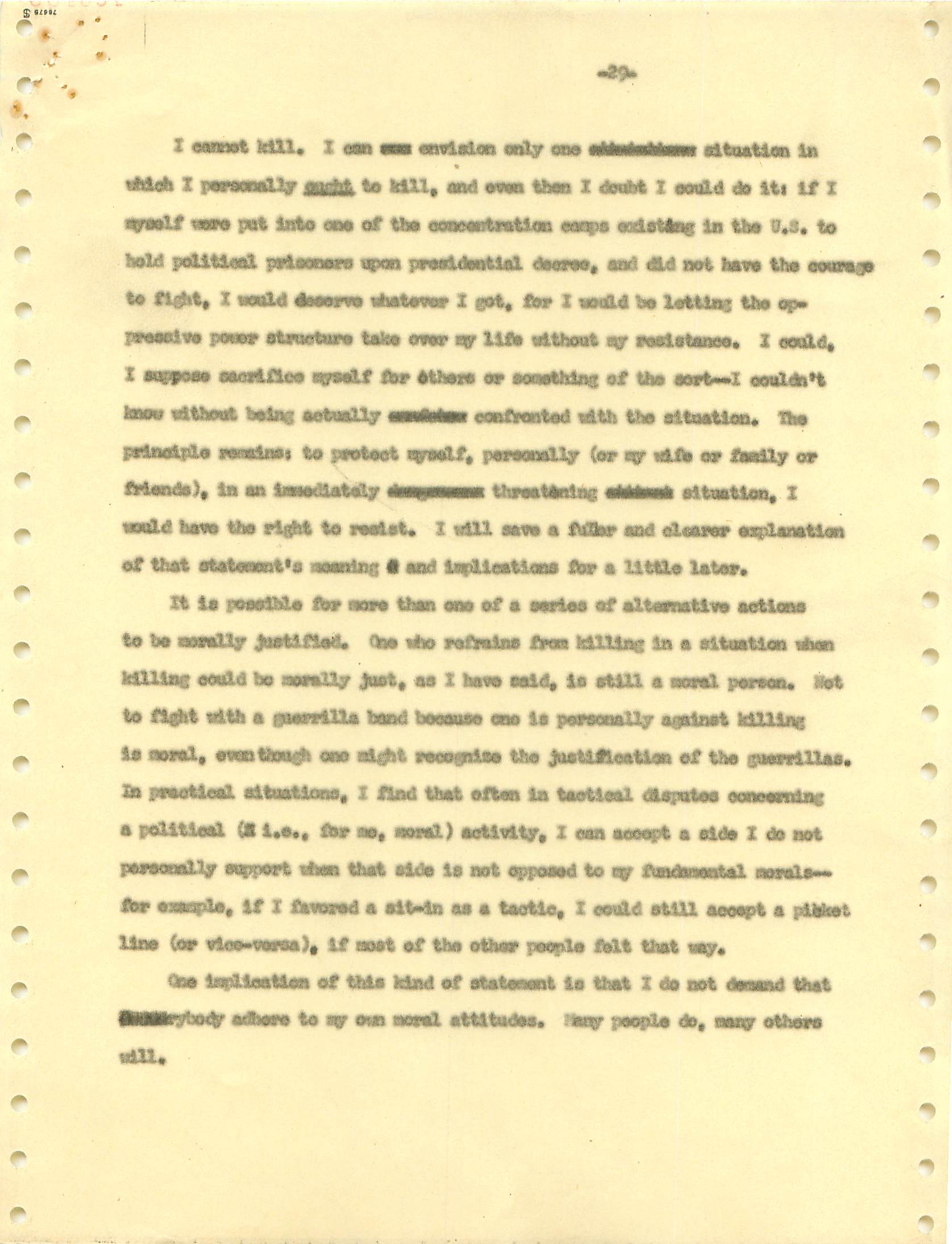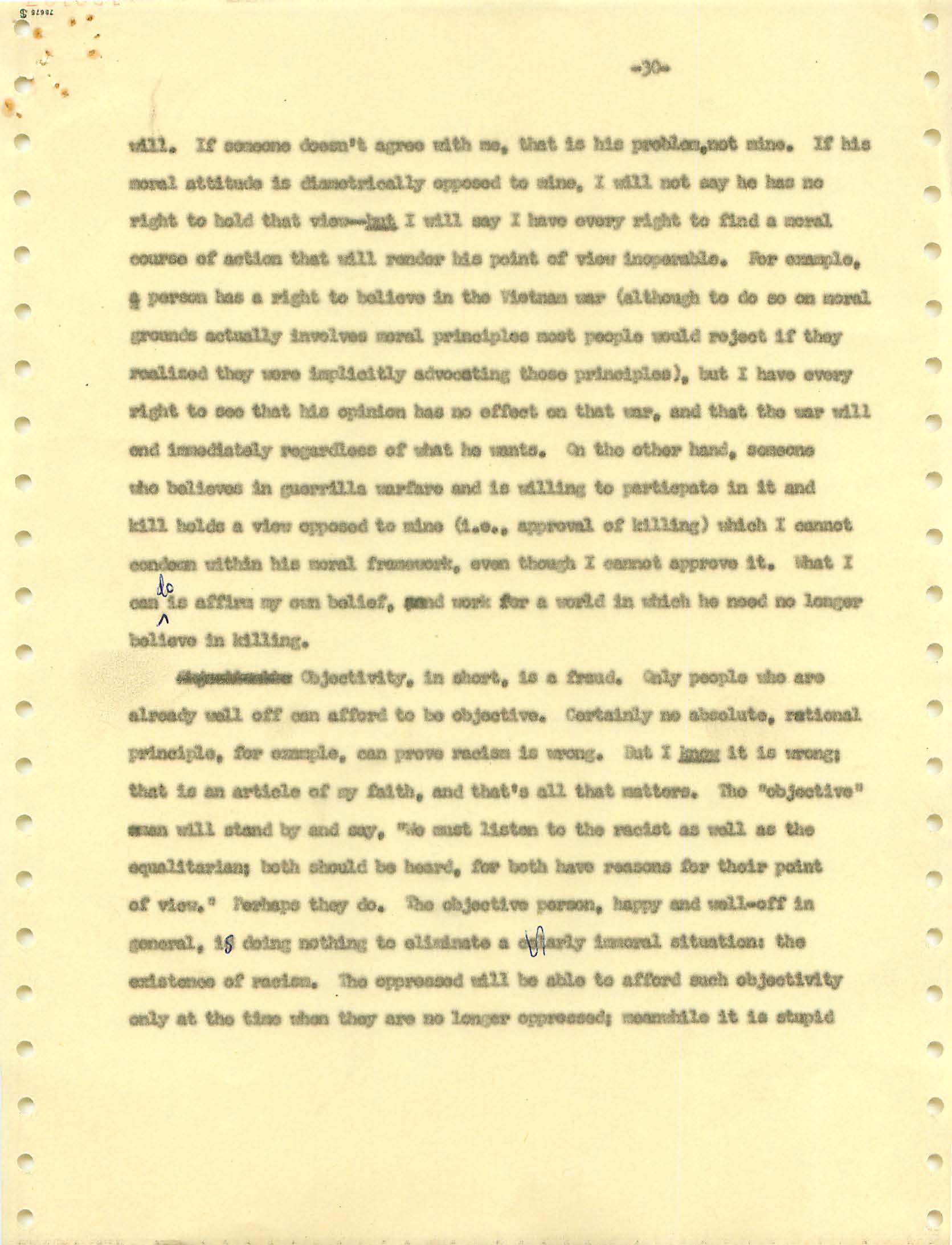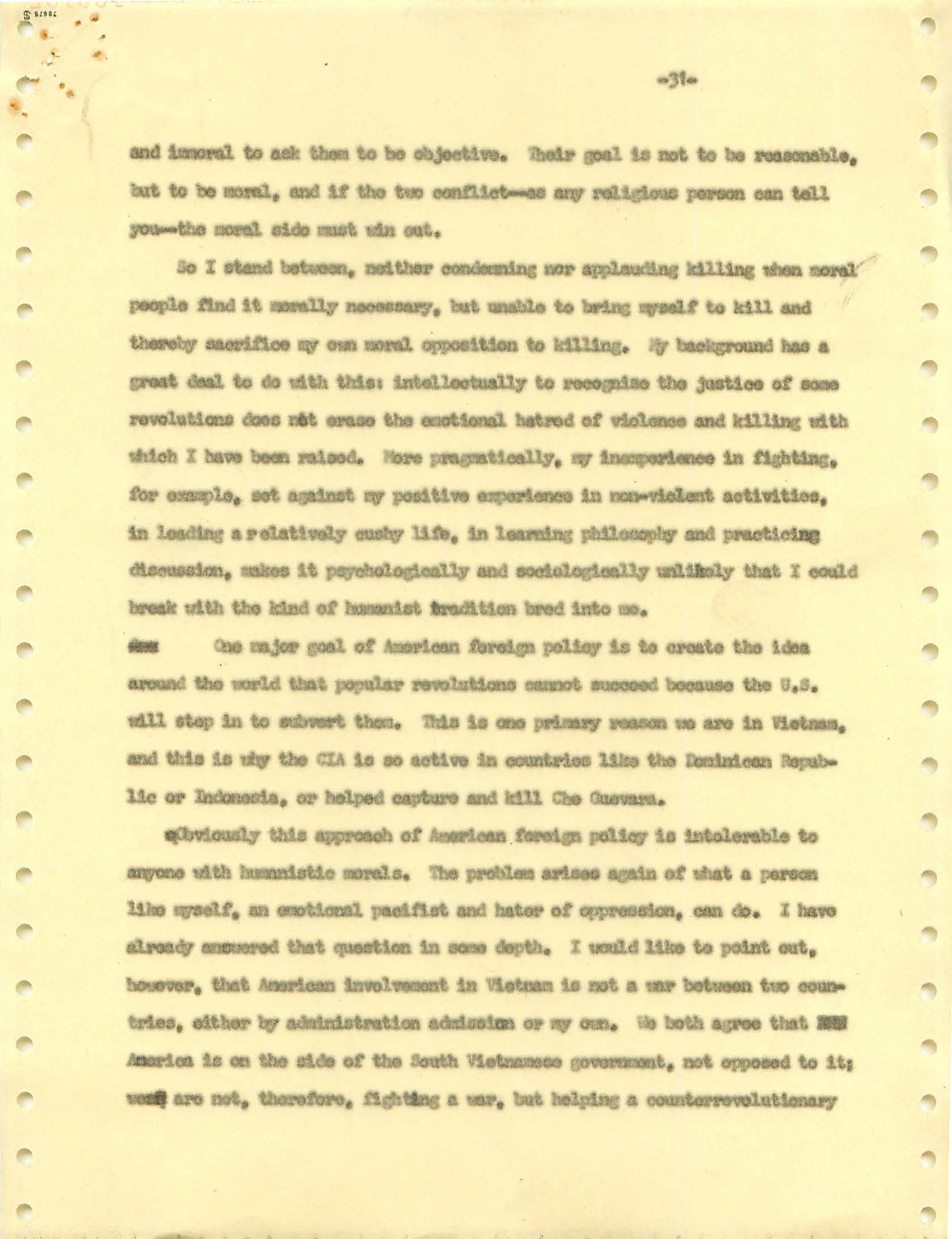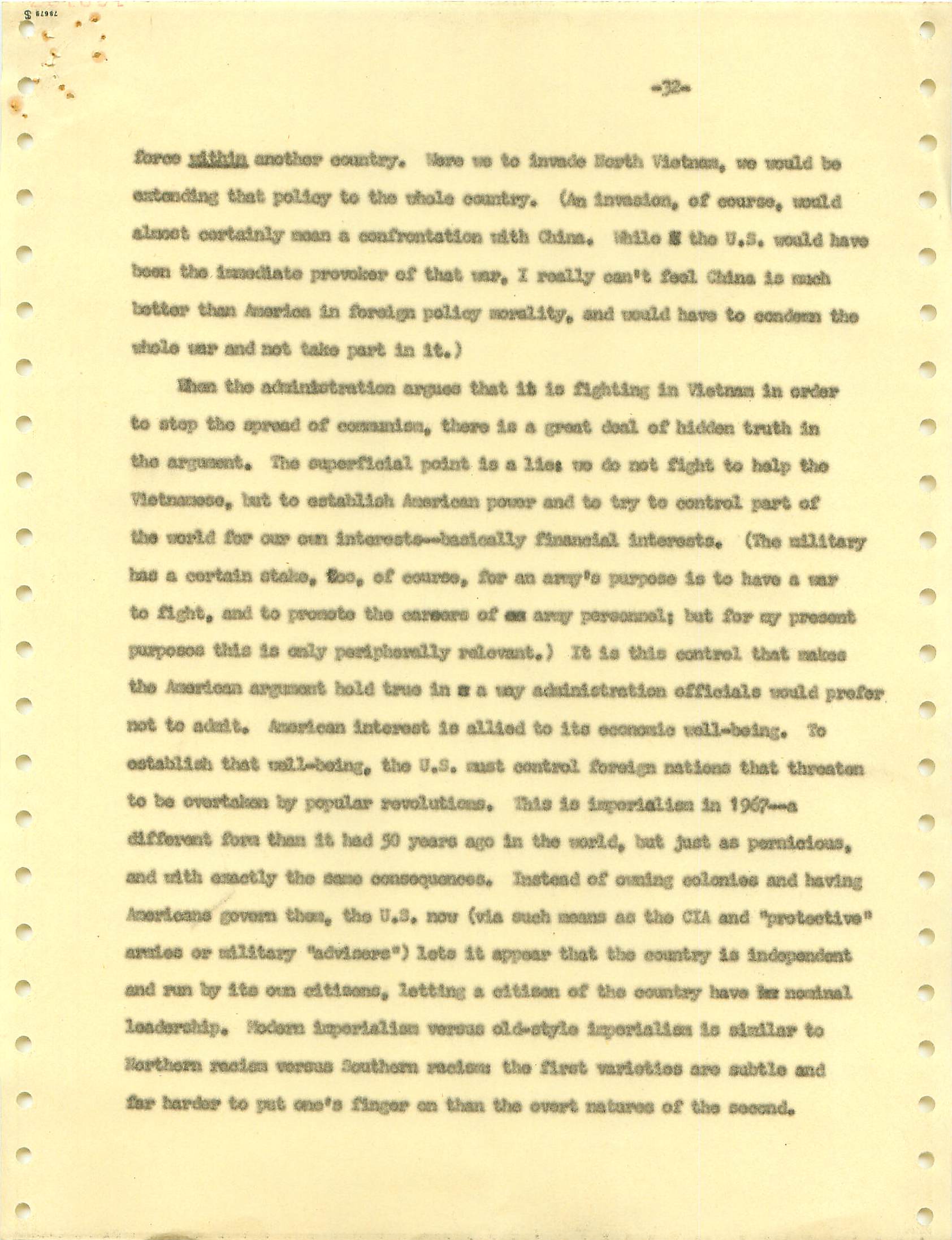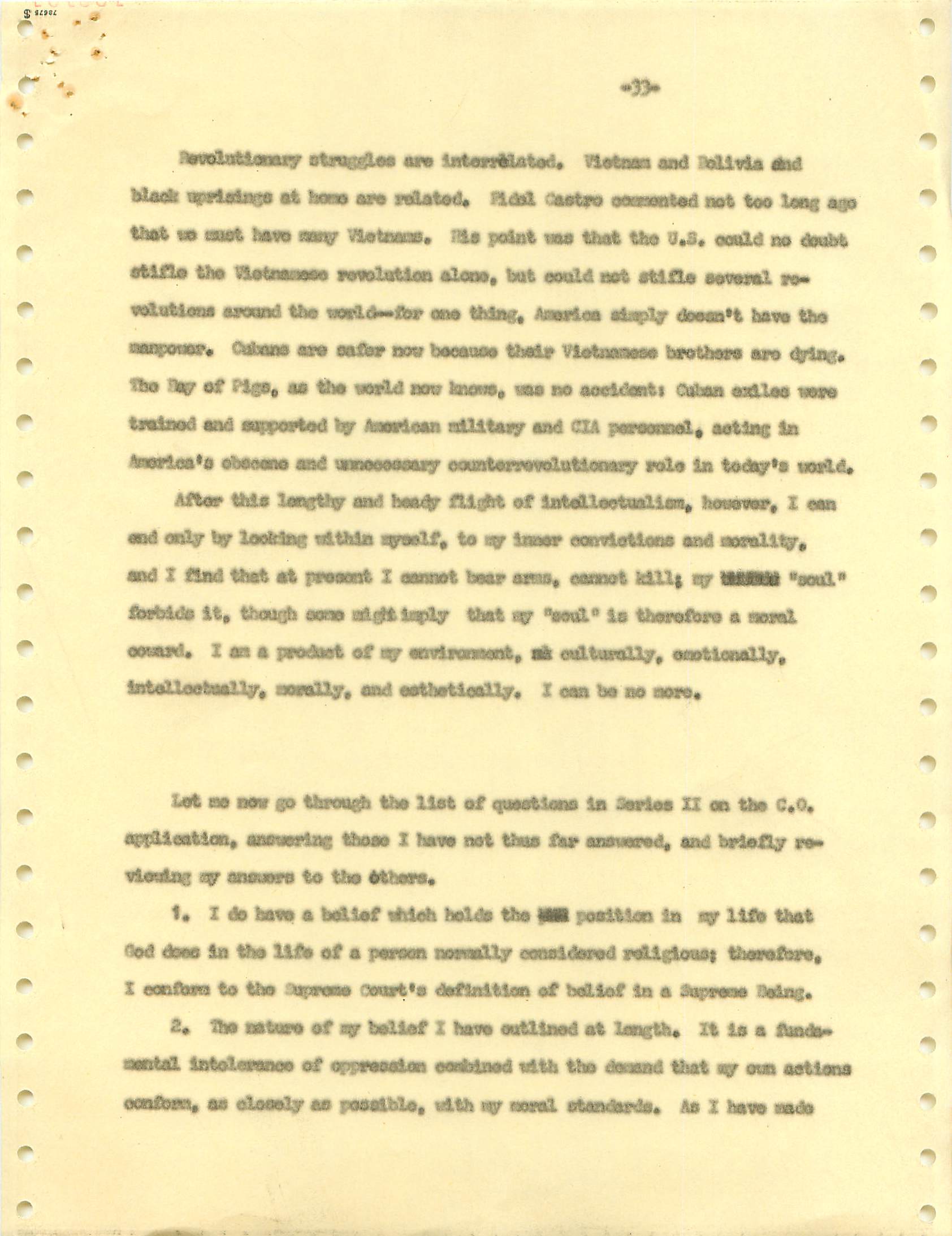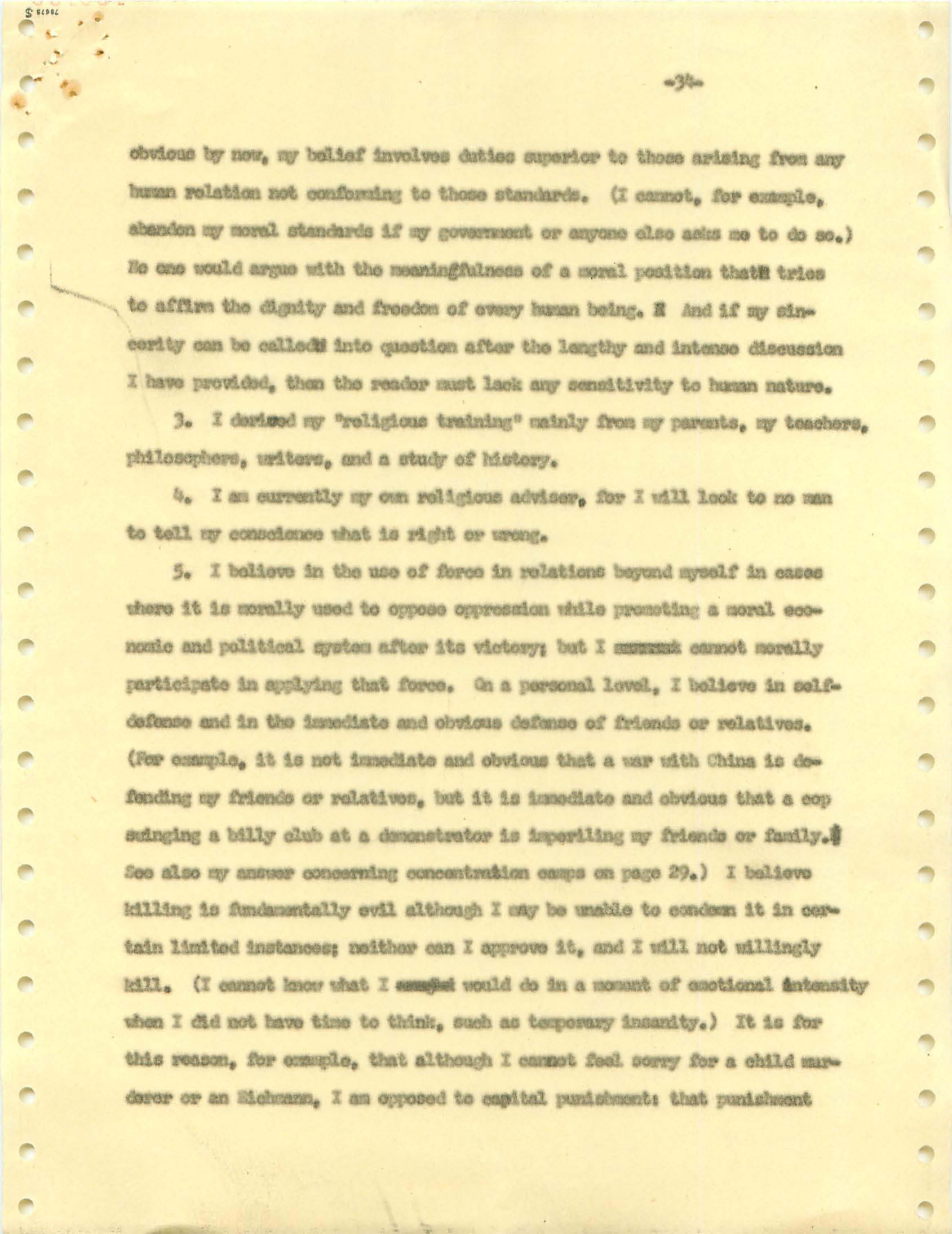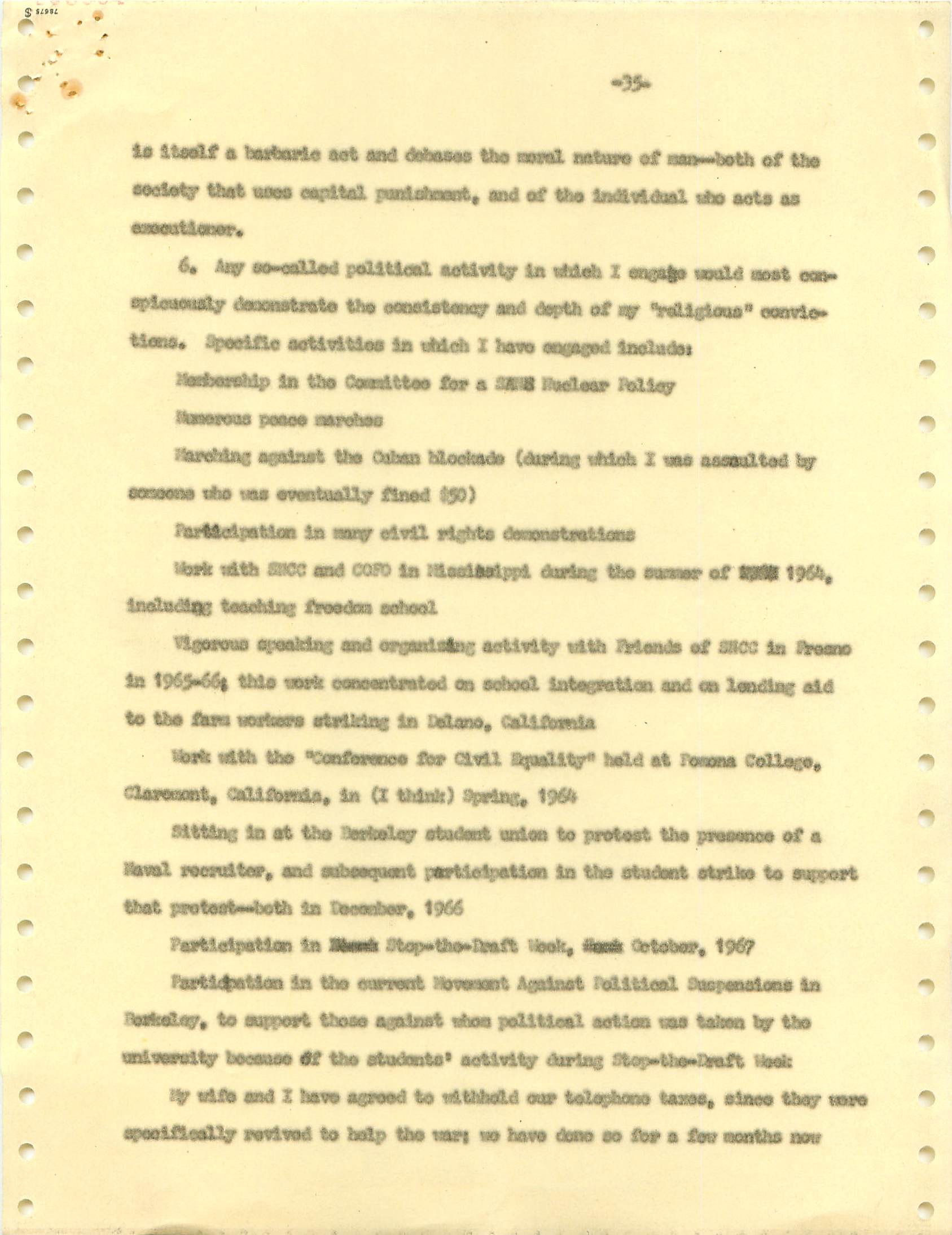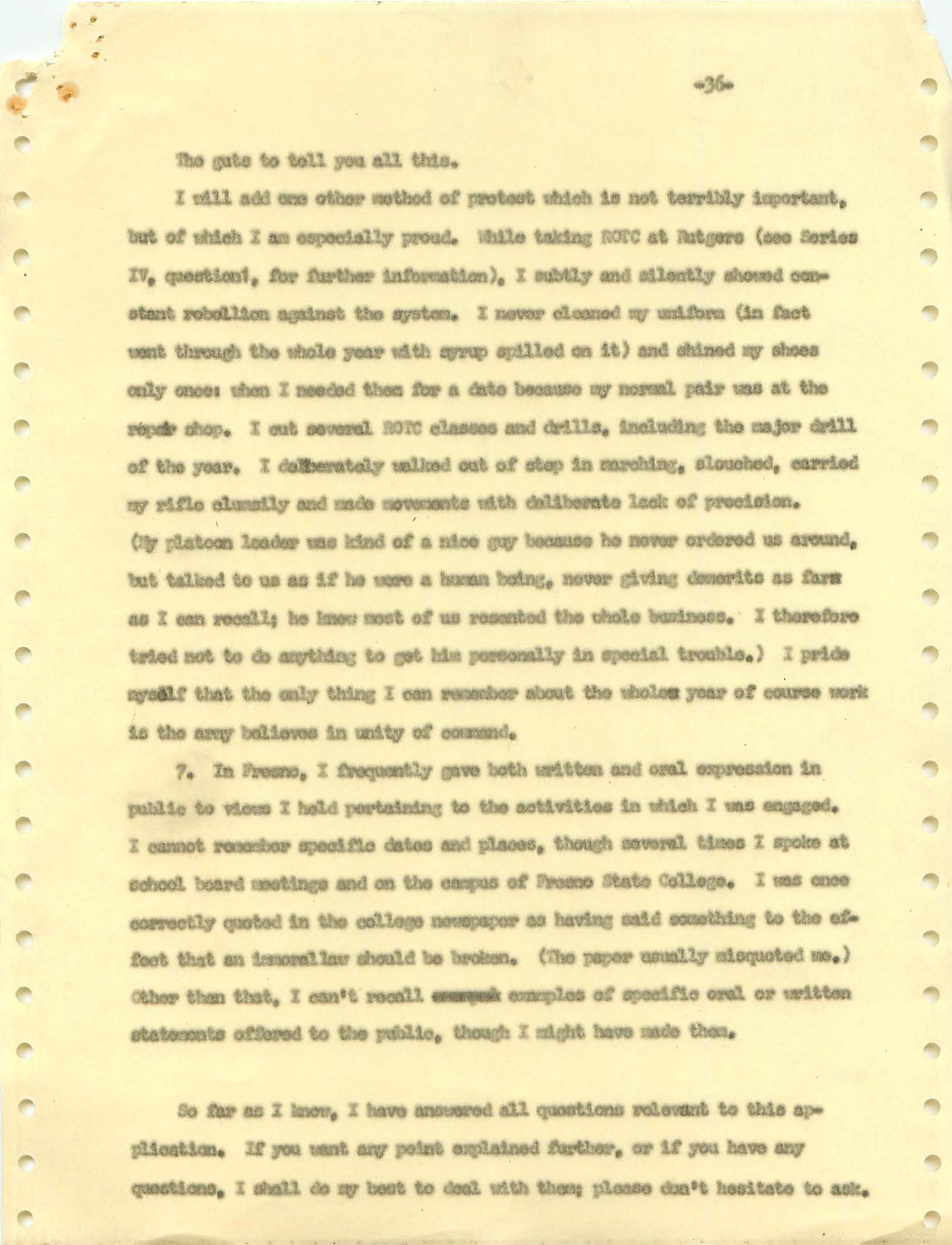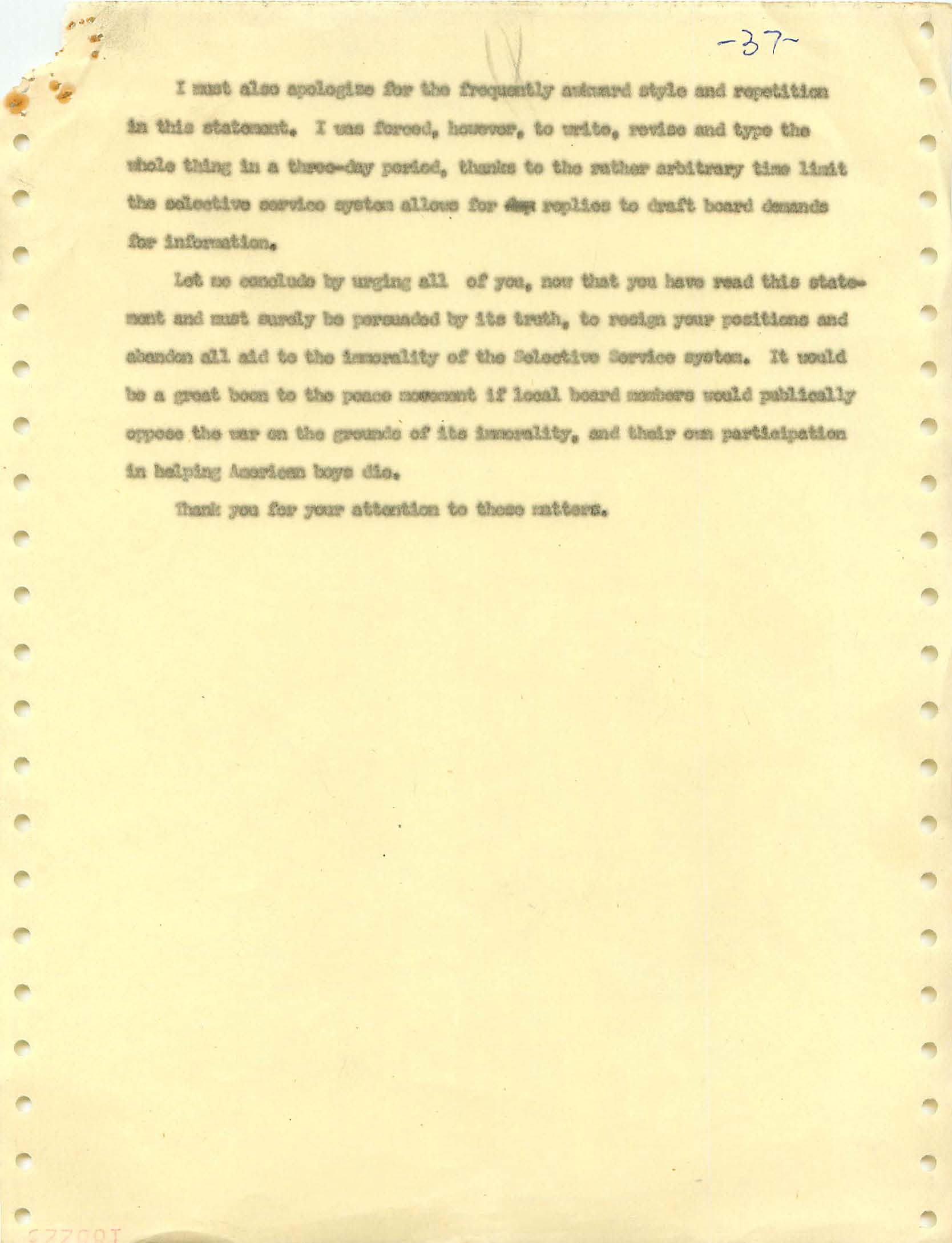|
TOPICS My blog e-mail me | header Avoiding the Vietnam War draft |
November 22, 2008 During the Vietnam War I was a draft dodger--that is, I determined to avoid getting drafted. I made sure my passport was up to date, and I took student deferments every year. In the anti-war movement, this was a virtue. For much of the rest of the country, it was at best cowardly and at worst a willingness to let other young men die in my place. (As I write, it has been fashionable for some years for many to look back on that war, however morally wrong it is now viewed, and extol service in the war. That is, avoiders of that draft still get a bad press.) I was certainly scared of fighting or getting killed, and even before Vietnam I sensed that with my propensity to challenge authority I wouldn't last long in the military; but I also believed (perhaps partly but certainly not wholly out of convenience) the US was fighting an immoral war and that refusing to fight was an act of moral rectitude. I have never believed in patriotism, and love to quote that great conservative mind, Samuel Johnson, that "patriotism is the last refuge of a scoundrel." I believed that most of the young men serving in the war were dupes of our government, and I like to think that I did not approve of harassing vets who returned home. (This is probably true because it would echo what I do remember clearly: that despite the frequent, appalling antagonism of police to the Movement--whatever that was, exactly--I never felt comfortable with fellow lefties calling them "pigs.") I also didn't buy fellow left-wingers extolling of the Viet Cong or the North Vietnamese regime, but I did view the North as a lesser evil than the often corrupt and always right-wing South Vietnamese governments. (Readers may recall that the US has long had a propensity to back "friendly" regimes regardless of their politics against "enemy" regimes, which in those days were anything that called themselves communist and today anything our leaders choose to label "terrorist.") One of the less palatable arguments to support North Vietnam was that because Vietnam was a single country, the North could not be invading the South--that is, it could not be invading its own country. I did have the nerve to burn my draft card (though I admired those who did); I was terrified of any action that would send me to prison. Until 1965, when I turned 25, if you had student deferments you were, for practical purposes, draft-proof once you were 26. That year, however, a new draft law was enacted that created a draft lottery (you were called up according to your birthday, and birthdays were randomly sequenced for a given year). In addition, those who received any student deferments after passage of the law would go into the lottery up to the age of 35. If you believed in the draft, this was certainly a fairer way of taking kids and minimizing manipulation, principled or cynical, of the rules to avoid the war. As a wily young guy, I devised the following scheme to avoid going into the lottery. It worked. When the law passed, I was a grad student at Berkeley and had a student deferment under the old dispensation that would last until September. My 26th birthday was the following February. So from my point of view I had to avoid getting a student deferement in September but string out my draft ineligibility for another five months. The following timetable is approximate. First, when I registered for coursework in September, I did not request a student deferement. As I expected, it took awhile for my draft board in South Jersey--let's guess late September or sometime in October. I received a notice that I was reclassified as 1-A (immediate draft eligibility). I think I had 30 days from the date of re-classification to appeal. Sojust before the deadline, I sent out my appeal to be classified as a CO. Probably what happened was that I then received papers to apply for this classification (which would explain why I refer to "3 days" in my statement below, though it possible that I just procrastinated.) After I submitted this statement there would be another long delay while my draft board got around to rejecting it. (I assumed they didn't read much of the statement, if any at all; I should have put at the beginning the closing punch line requesting the board members to resign in the face of my compelling arguments....) I then had at least one appeal of the rejection, which offered another 30-day window, then that appeal had to be rejected. Perhaps there were even more ways of delaying. In any event, I easily passed my 26th birthday while all this back-and-forth went on. Footnote:
Although I have met plenty of Vietnam veterans (many of whom are quite
cynical about their service) since then, at the time I knew no one at
all who went to Vietnam. The pilot husband of a teaching
colleague was killed when his plane was shot down, and I went to the
funeral out of respect for her; this was the closest I came to death
from the war. I was far more insulated from its effects that many
(presumably most) Americans. I don't know why that is so, though
it is quite plausible it had to do with my being in the Bay Area and
hanging primarily with counter-culture types. | |
